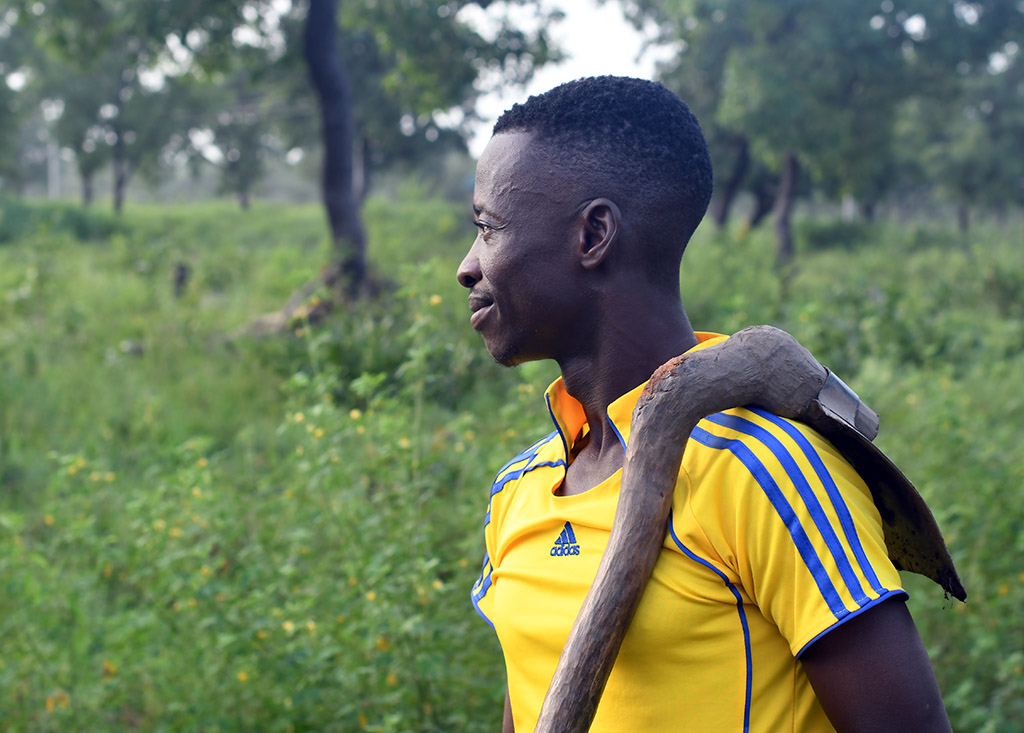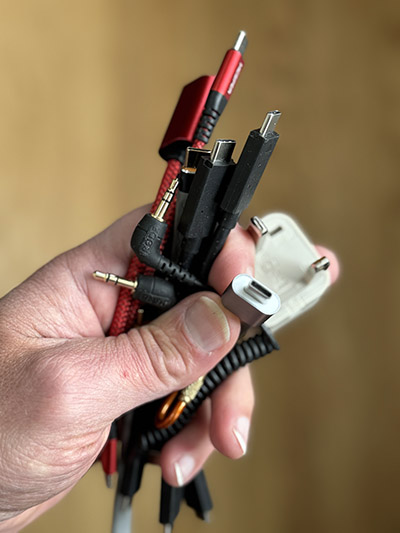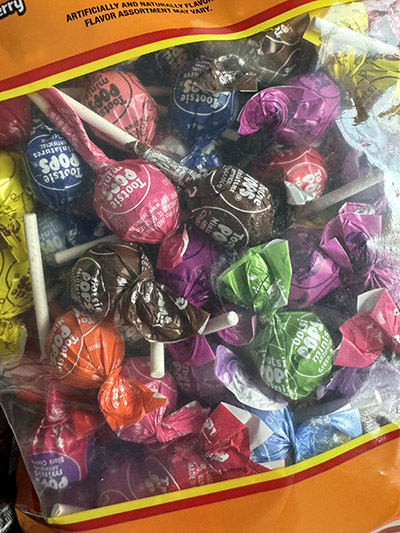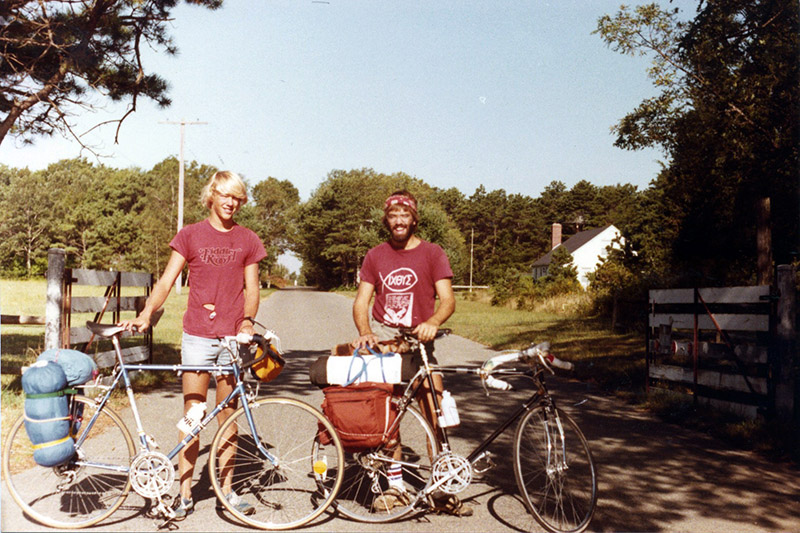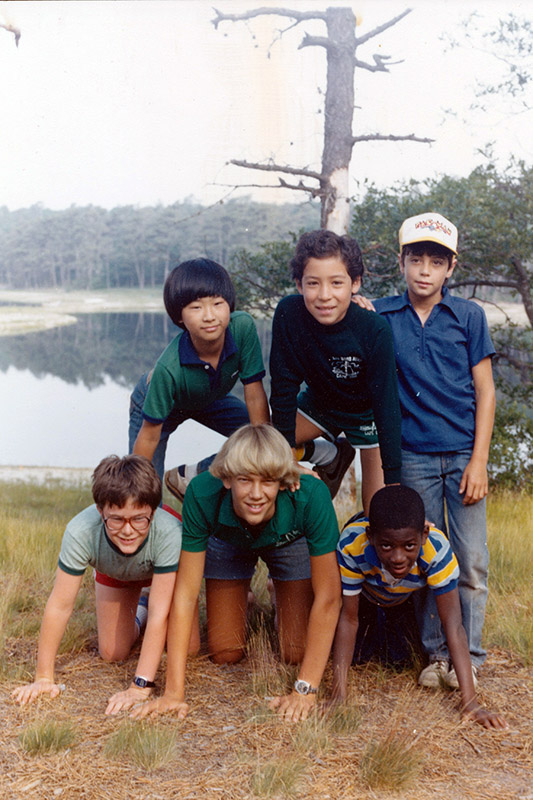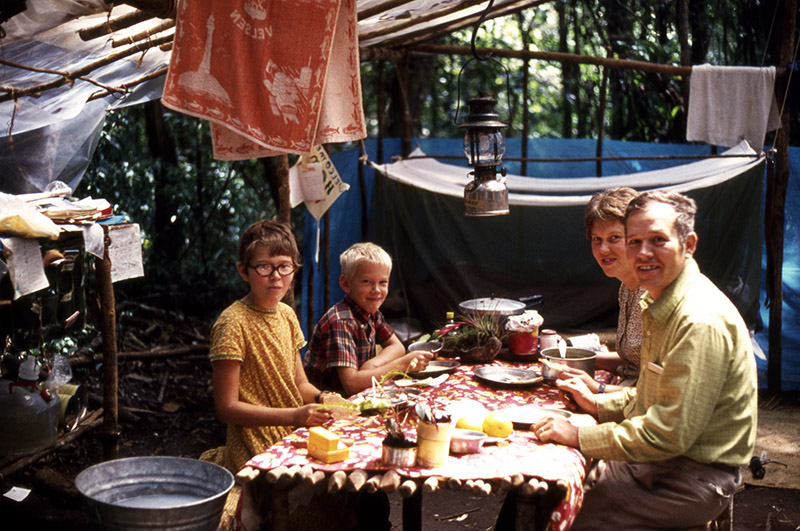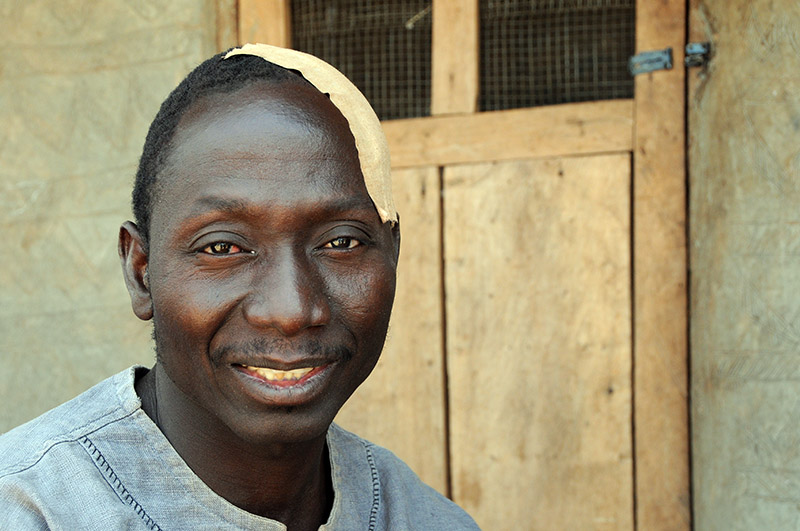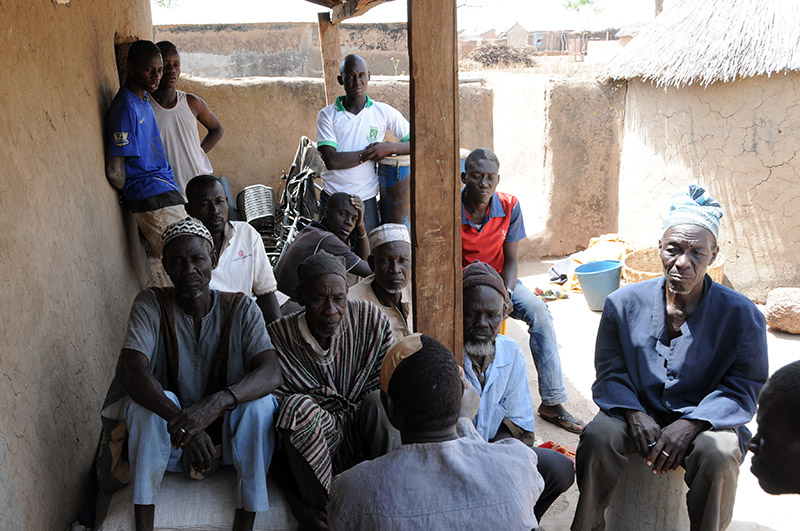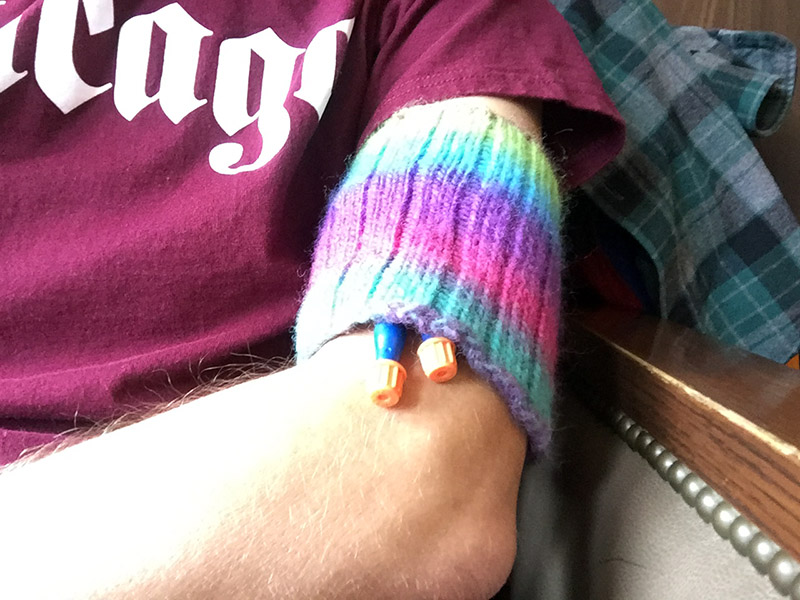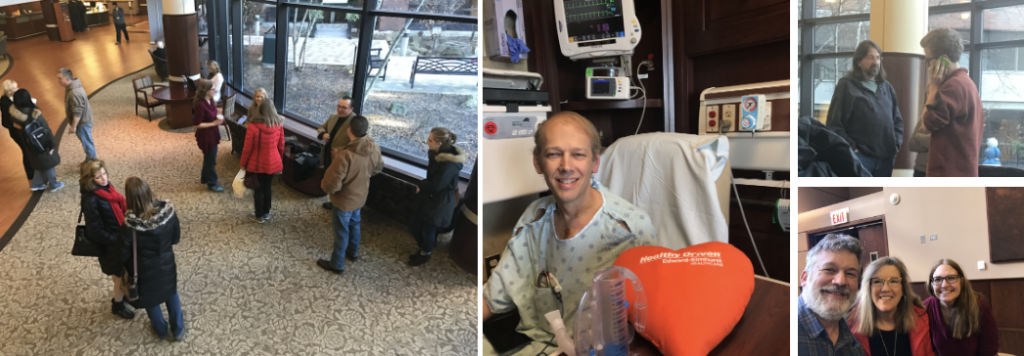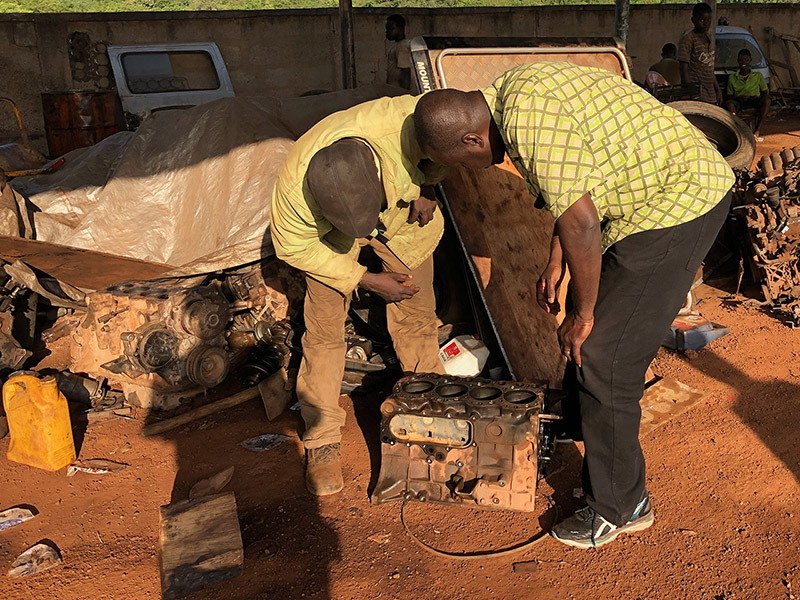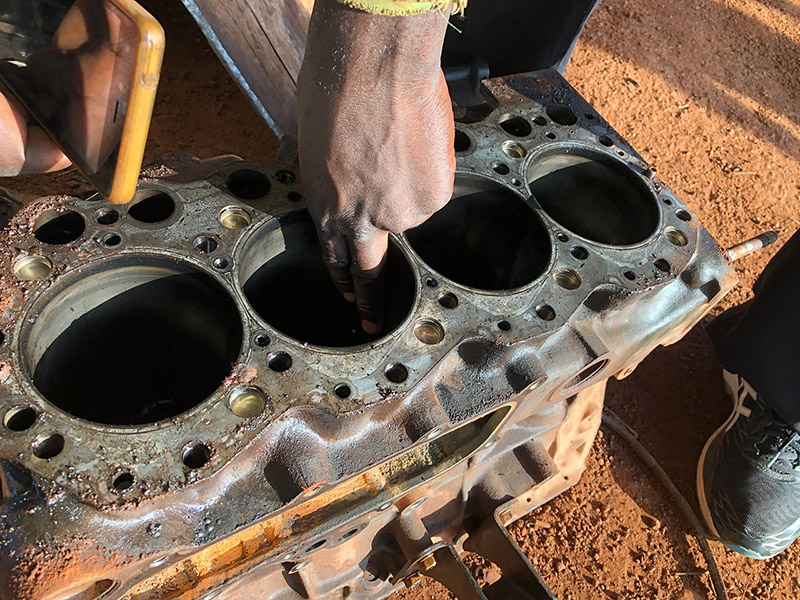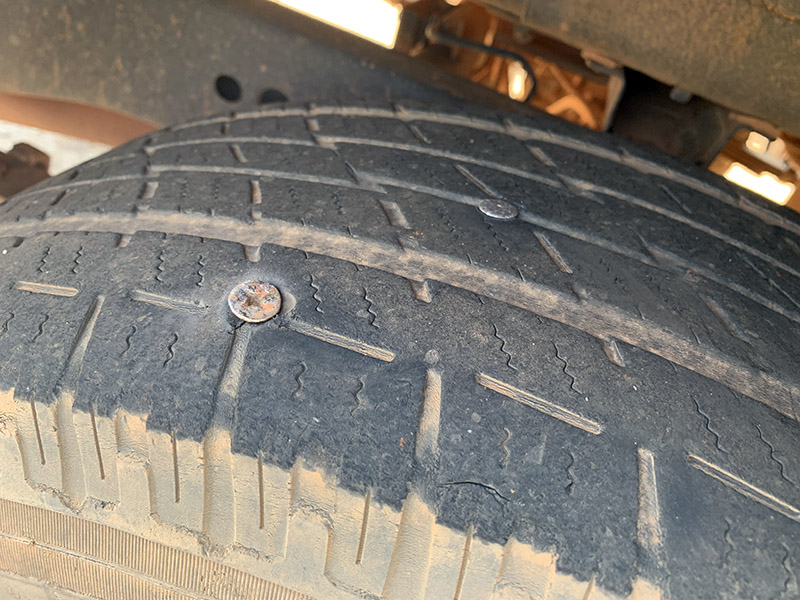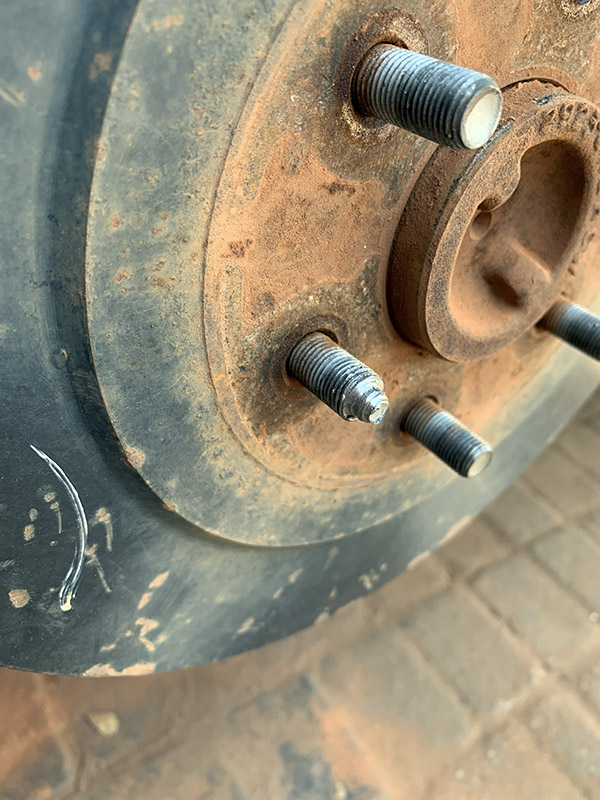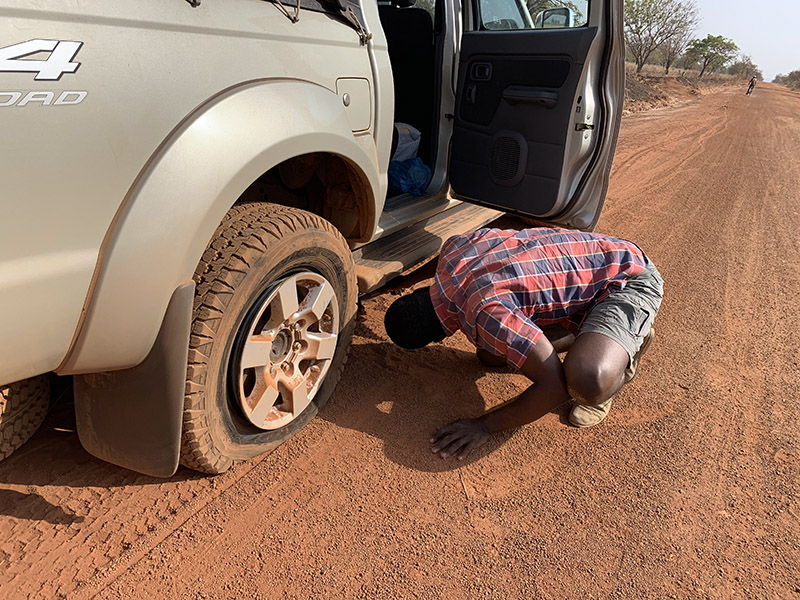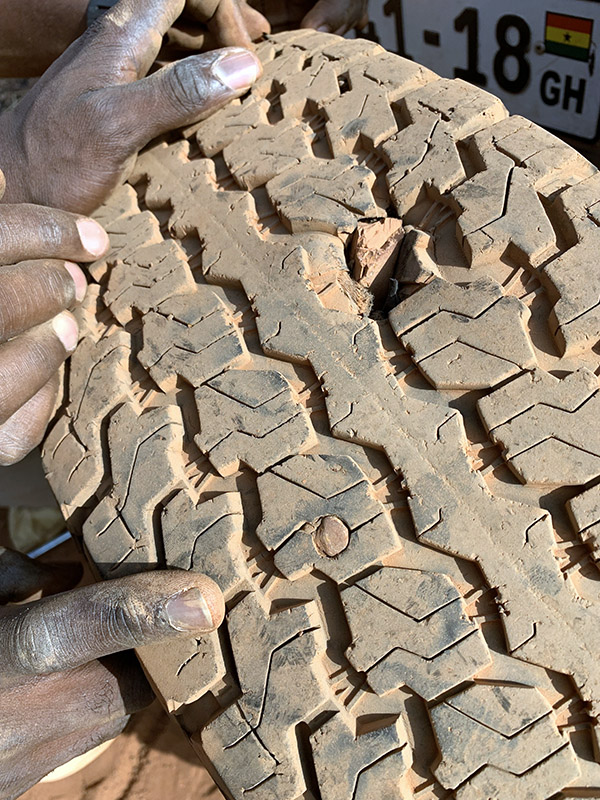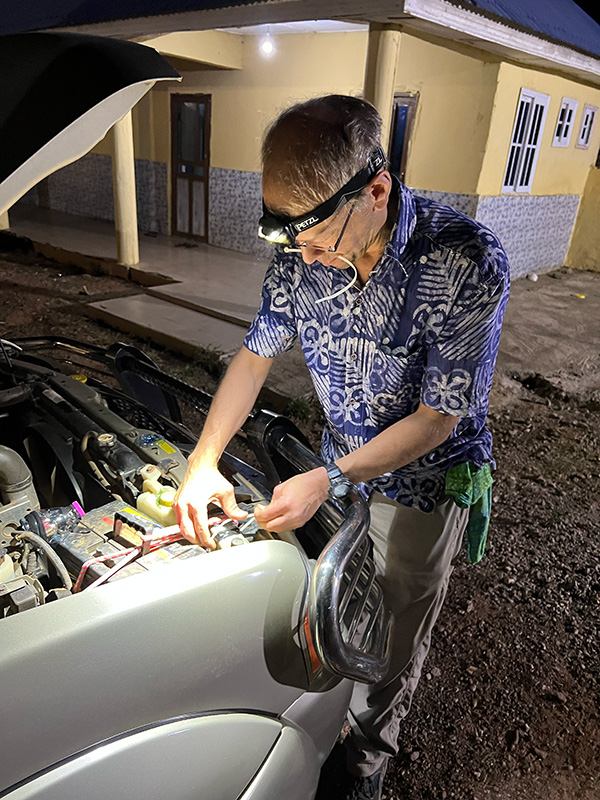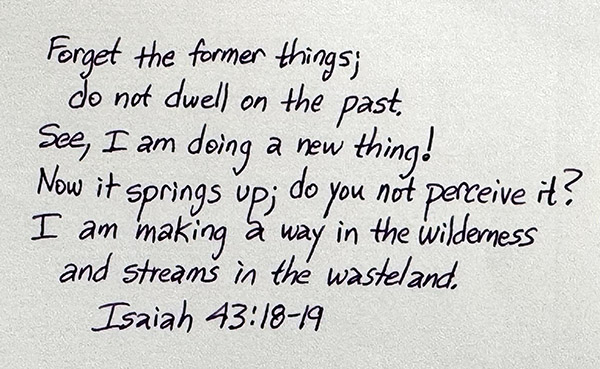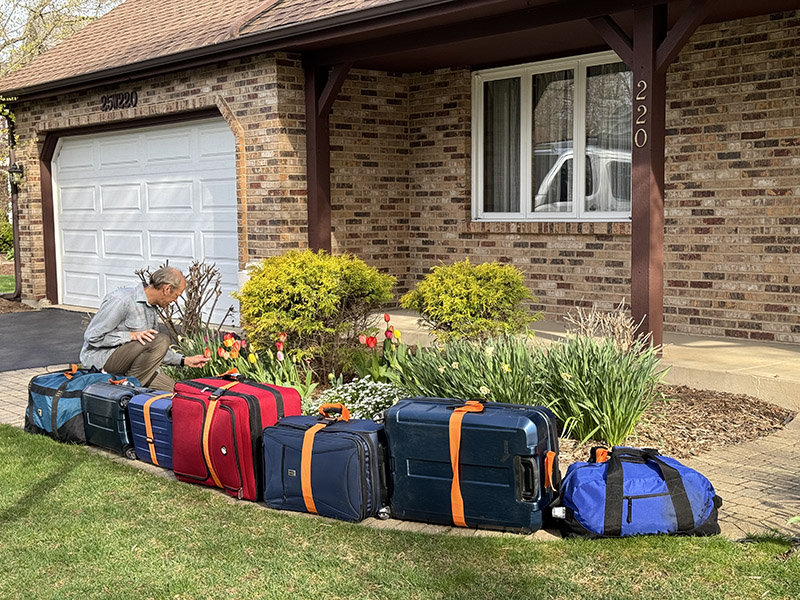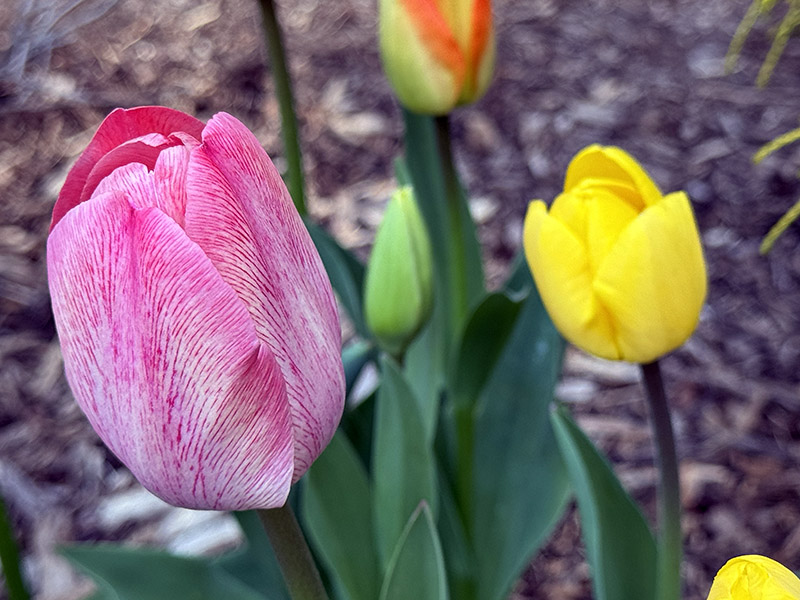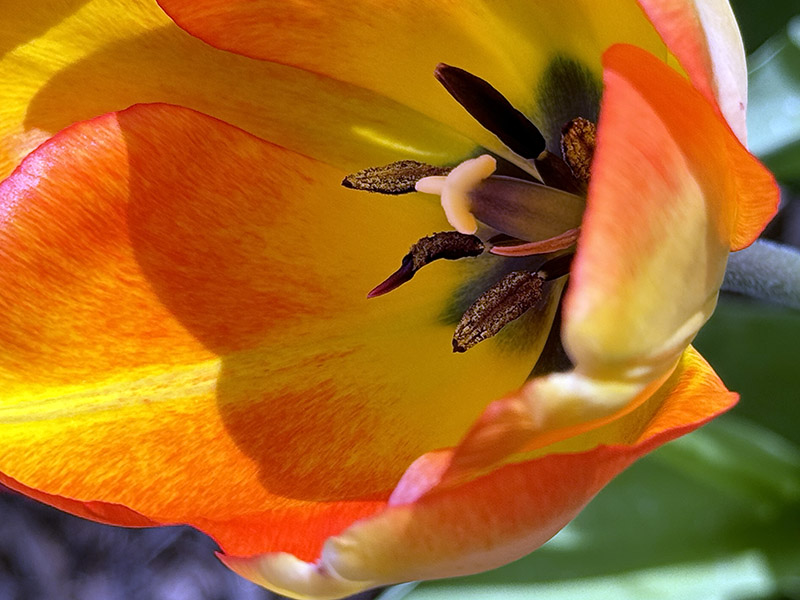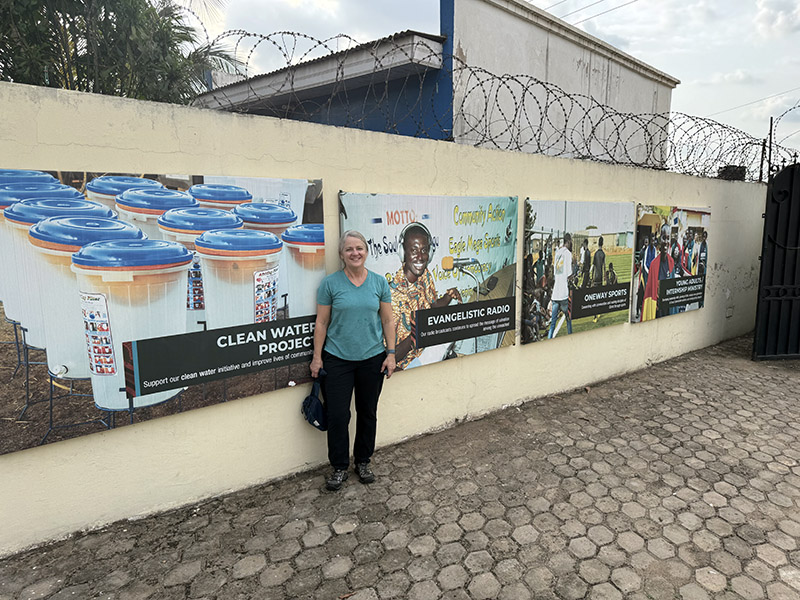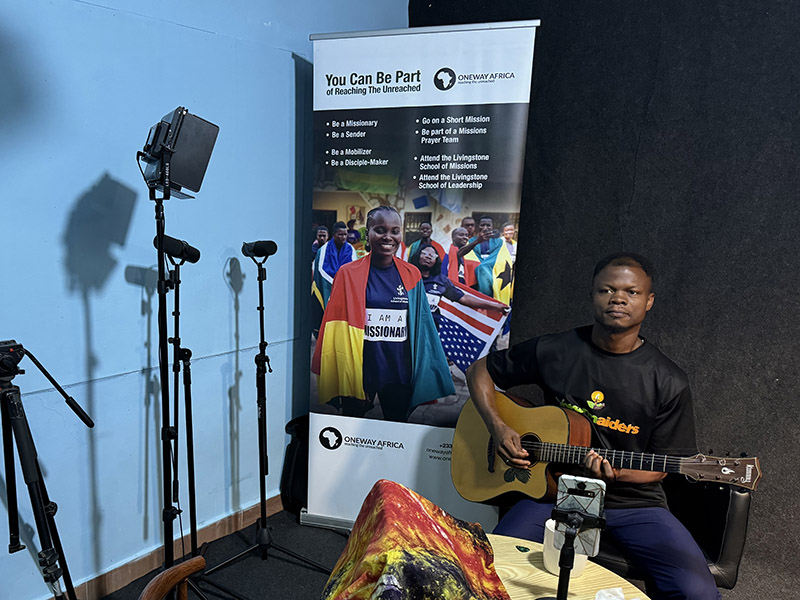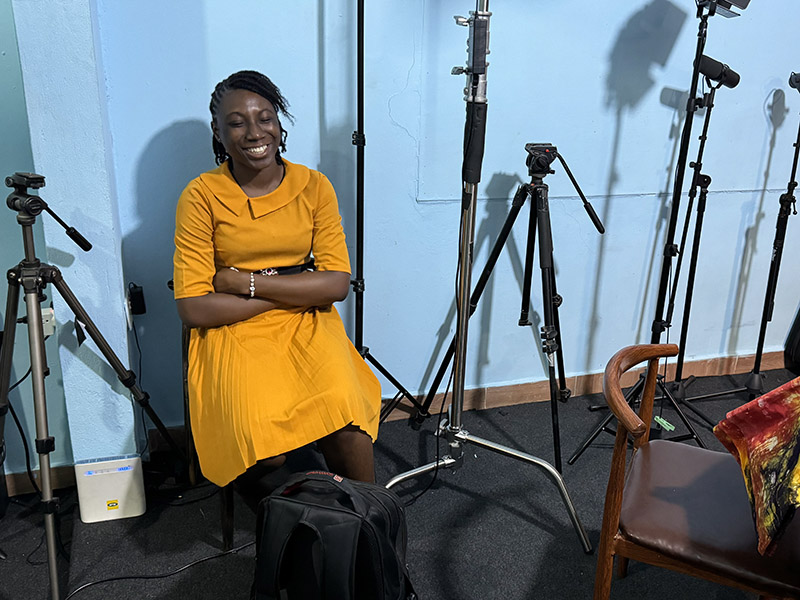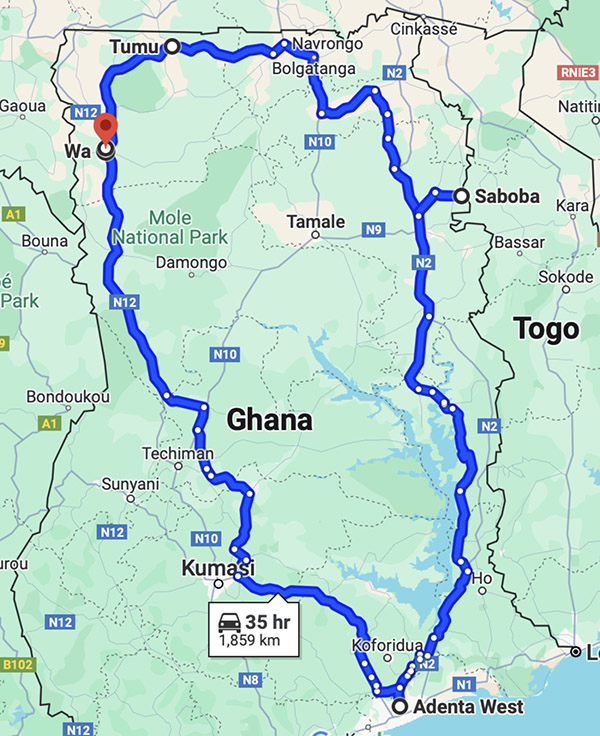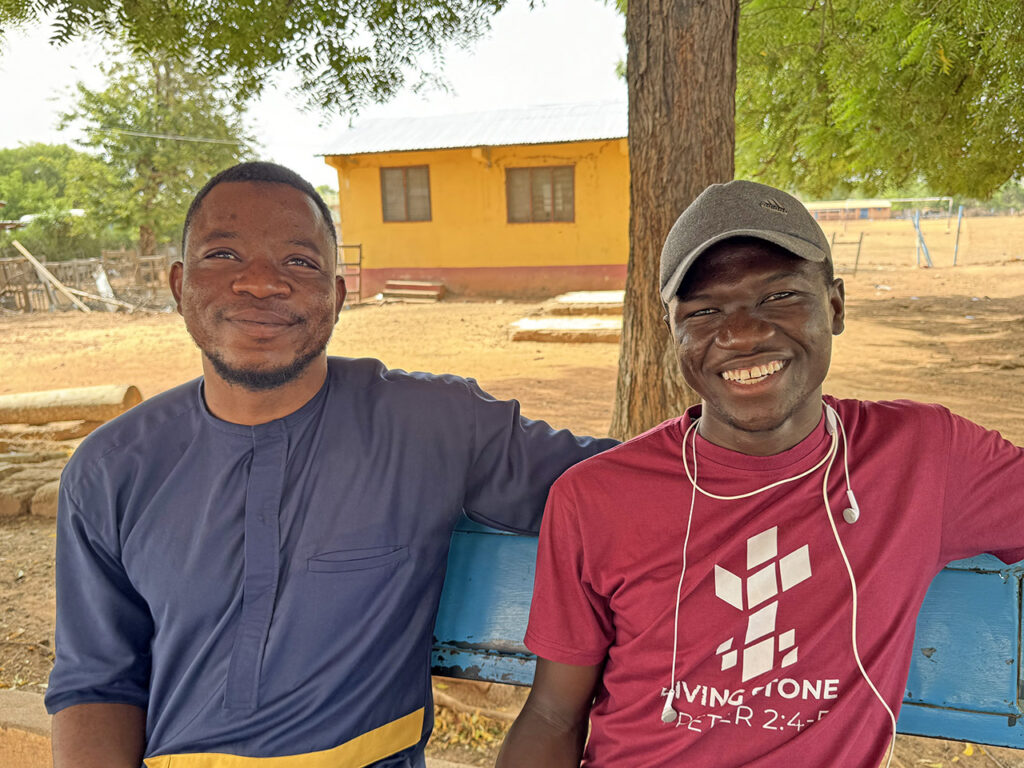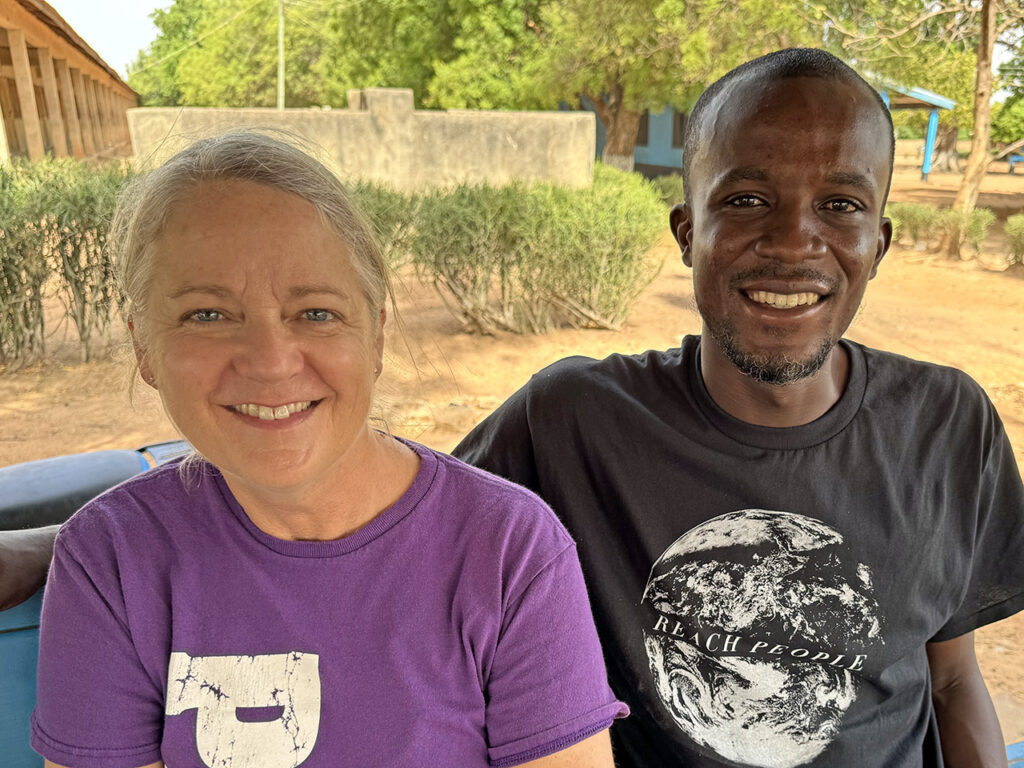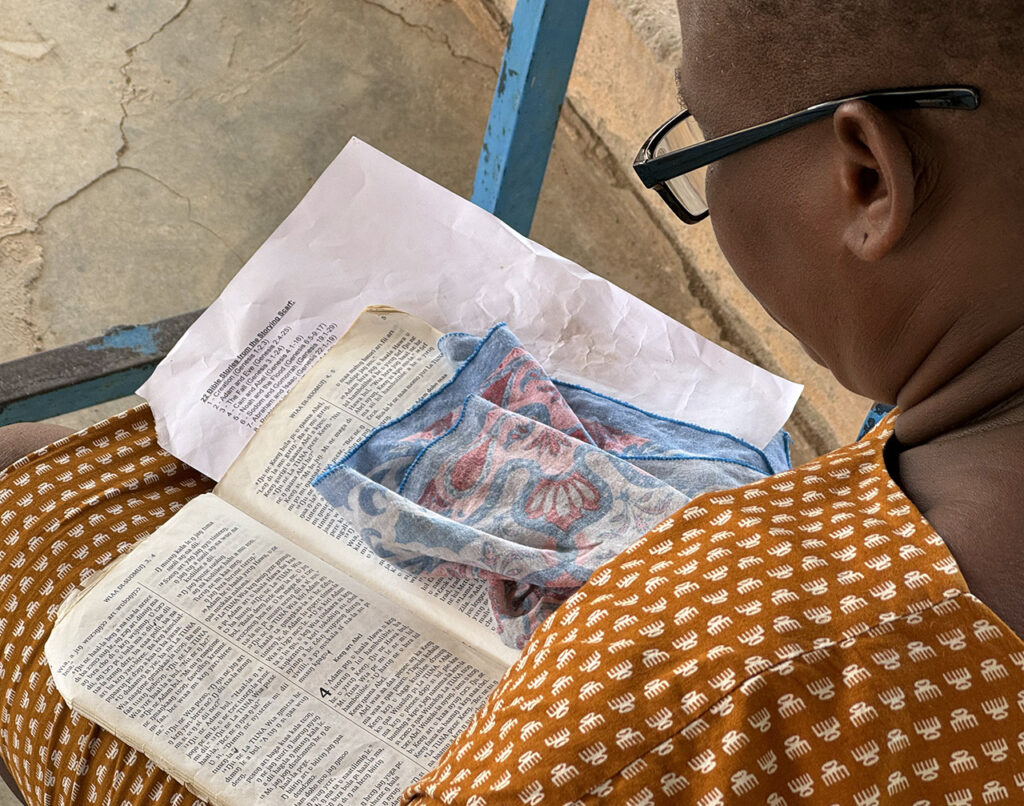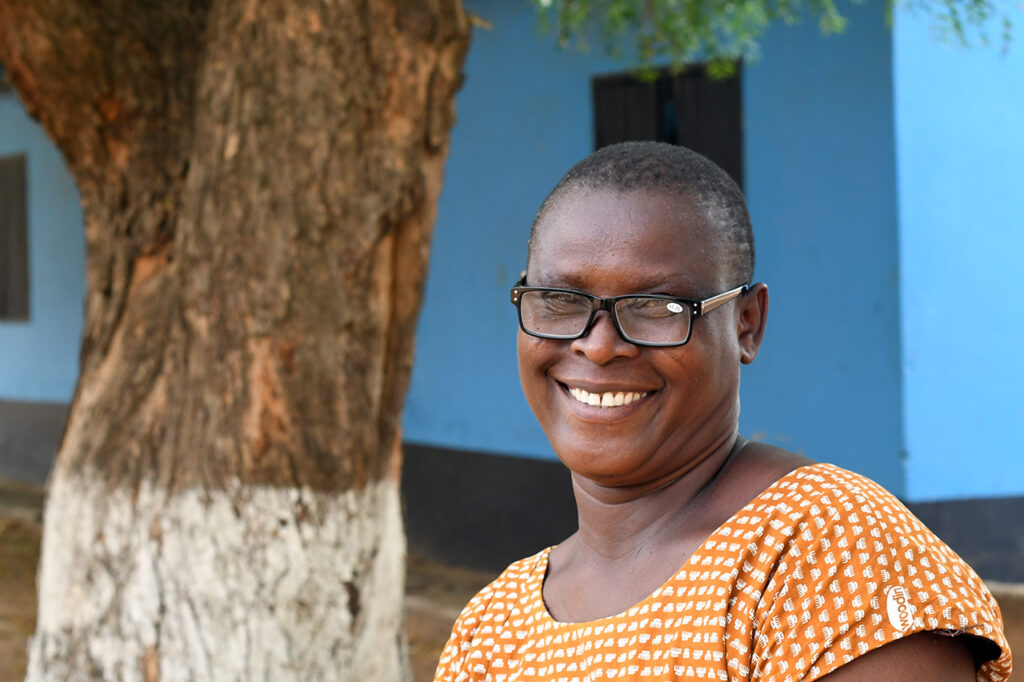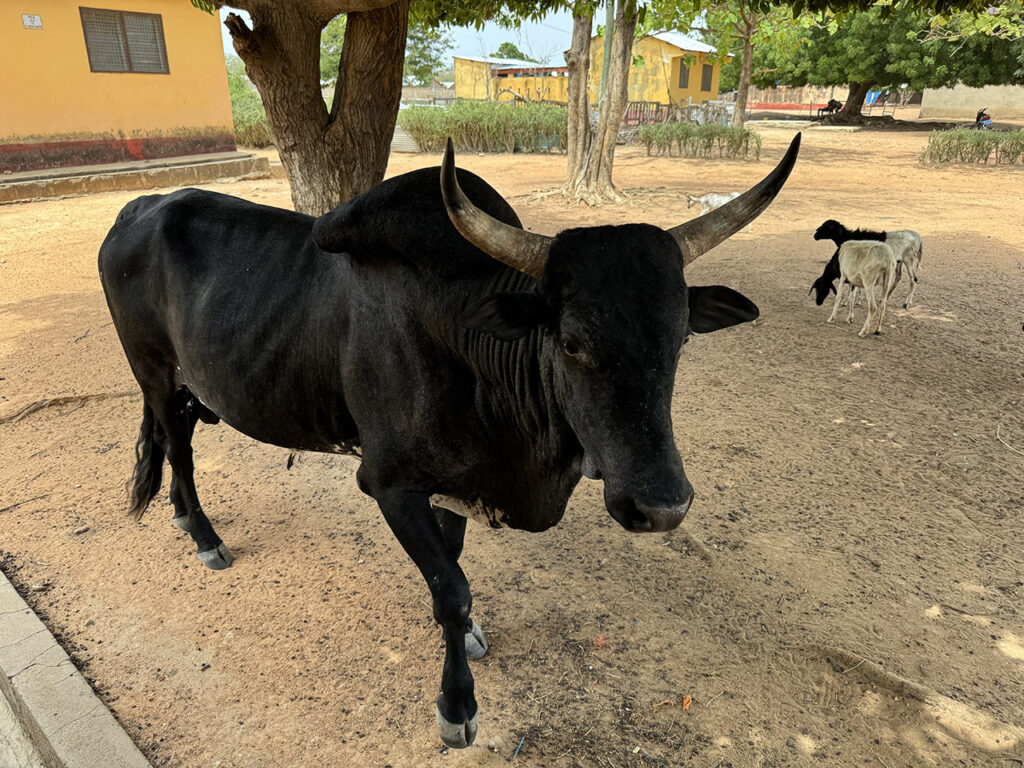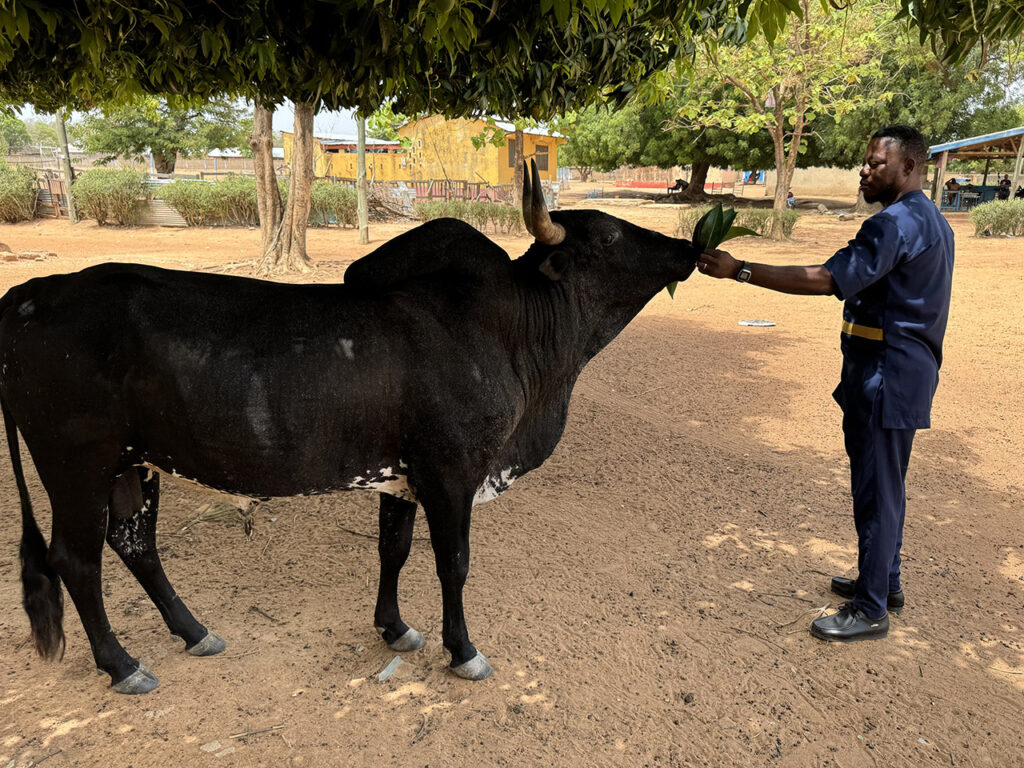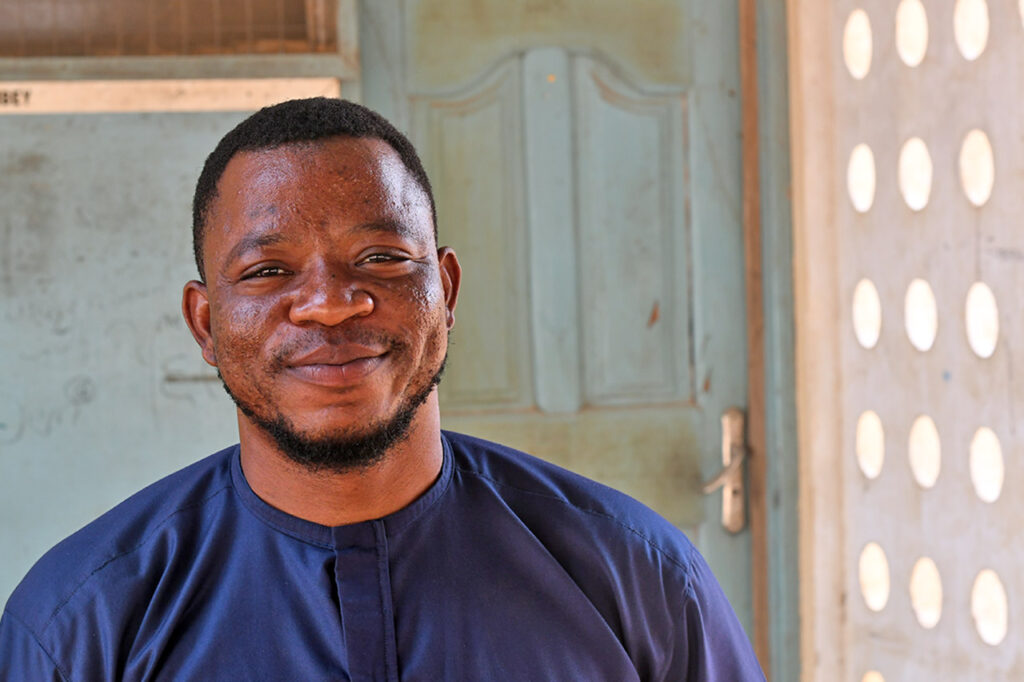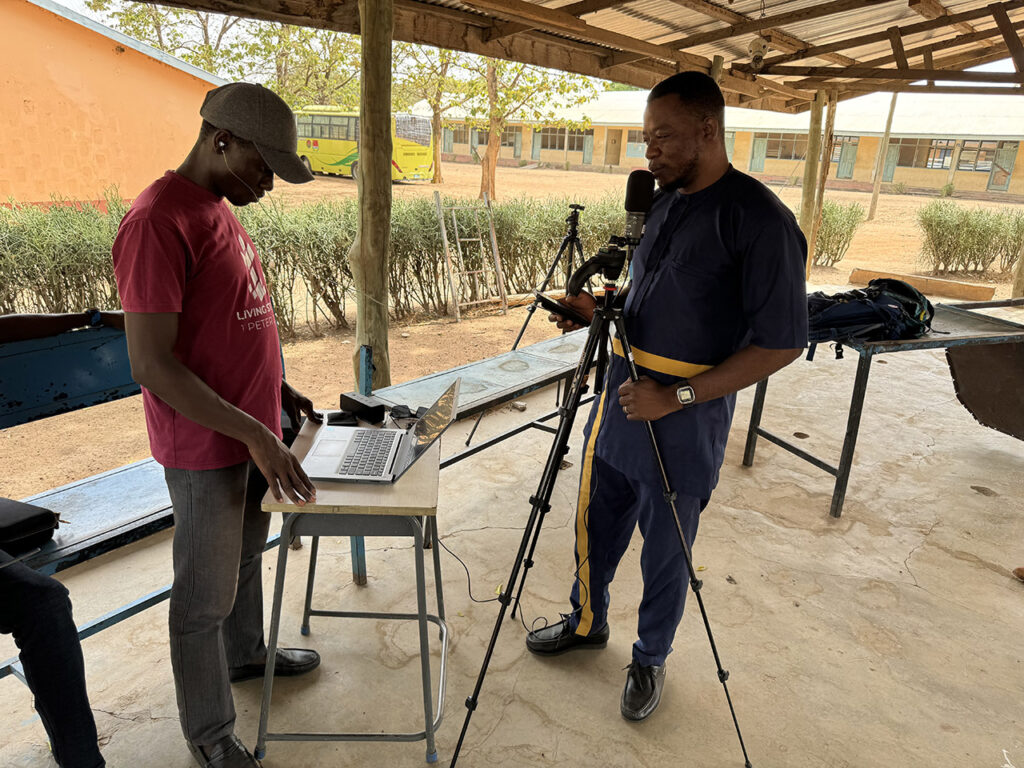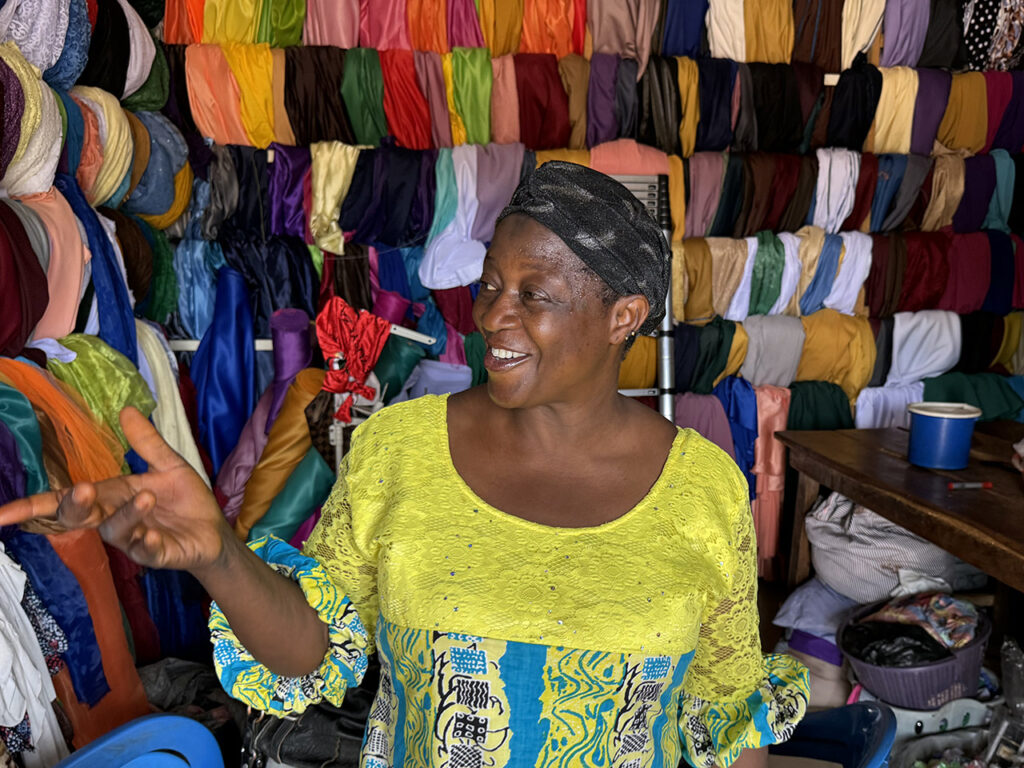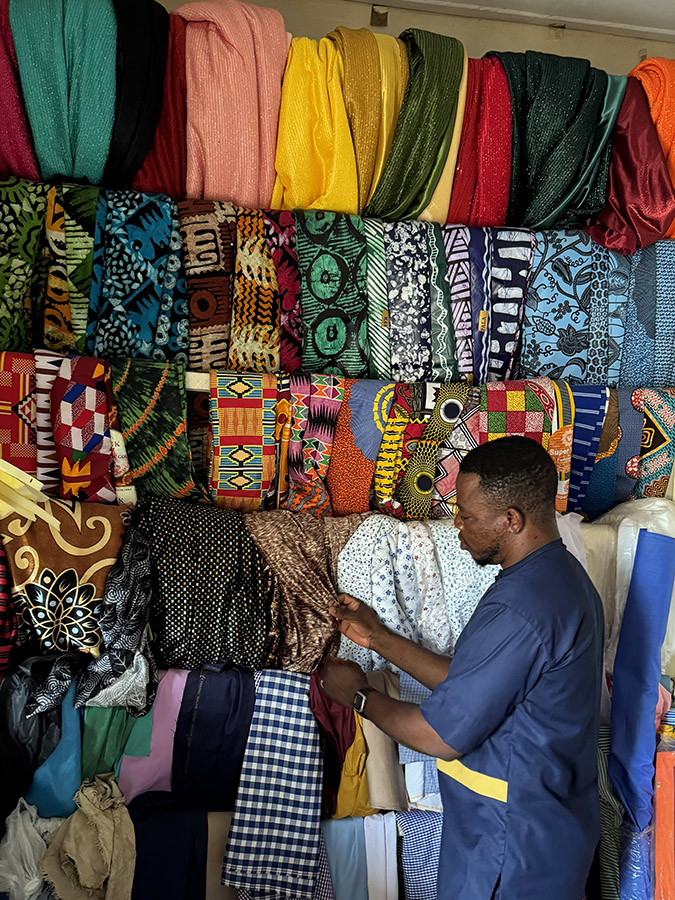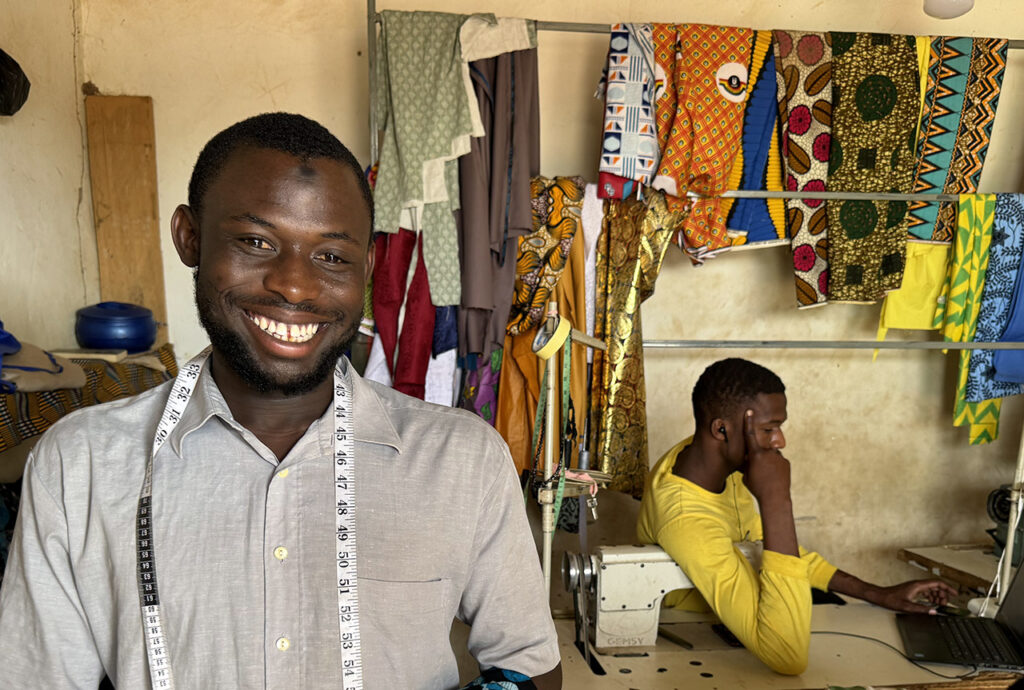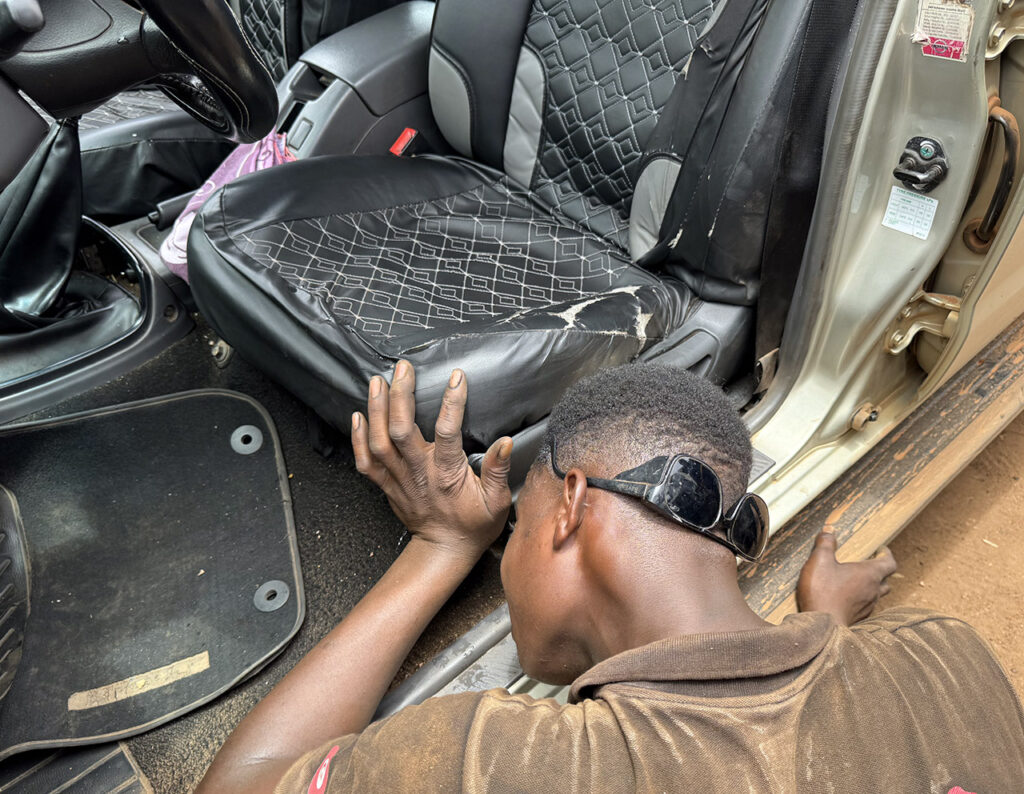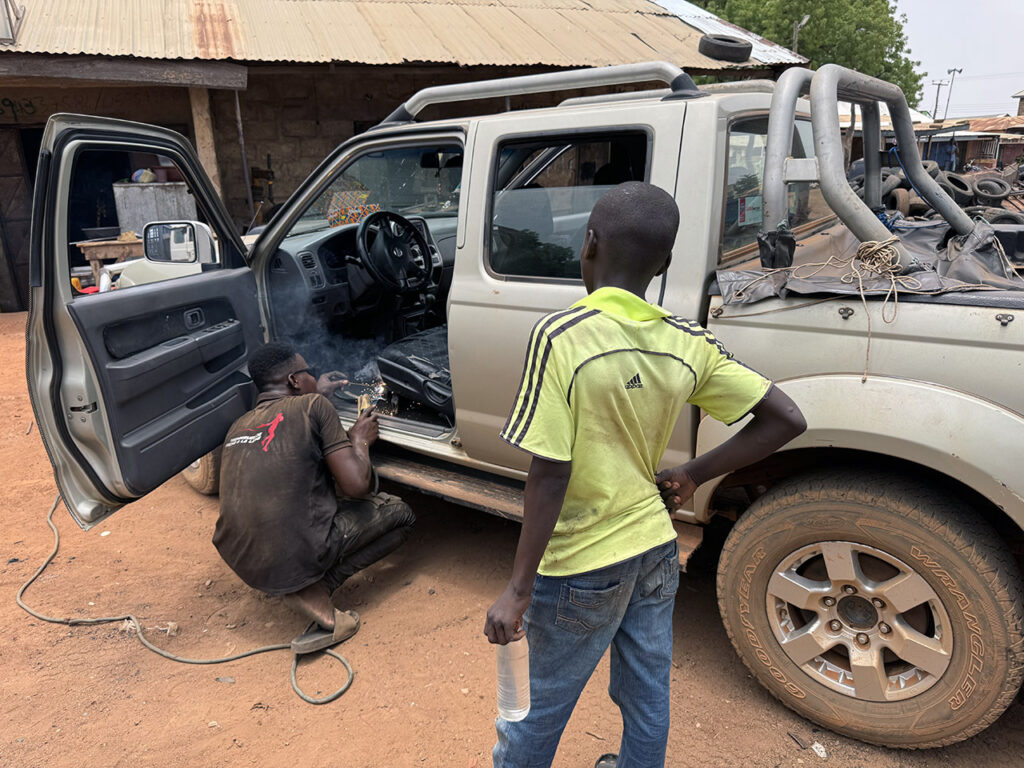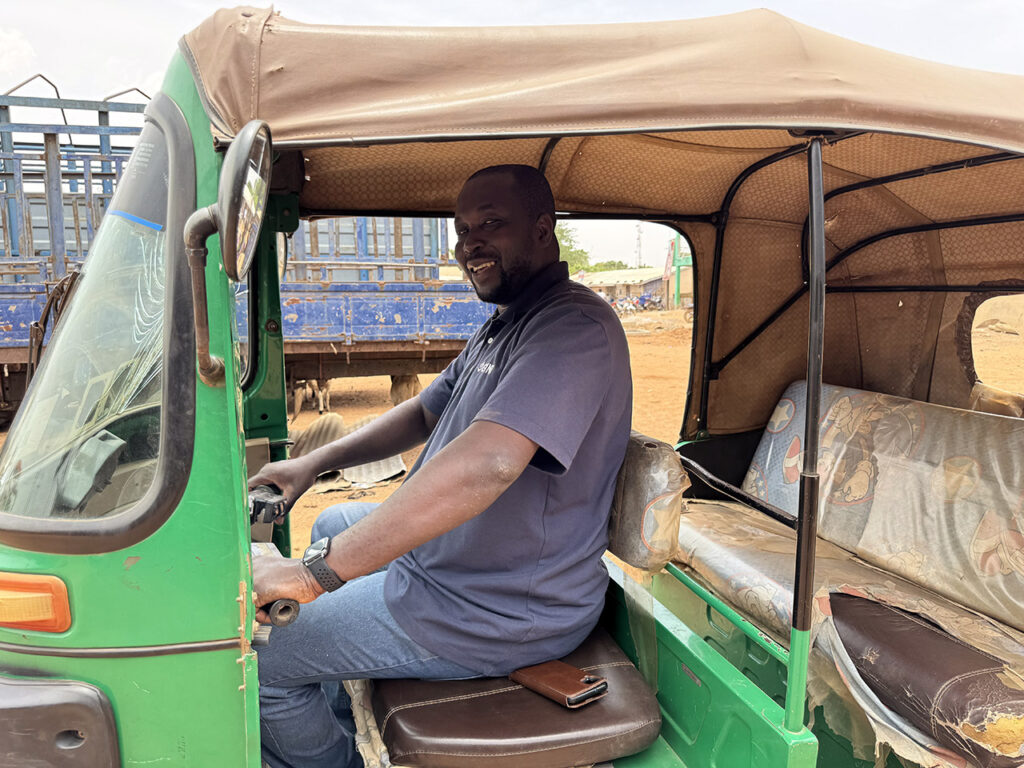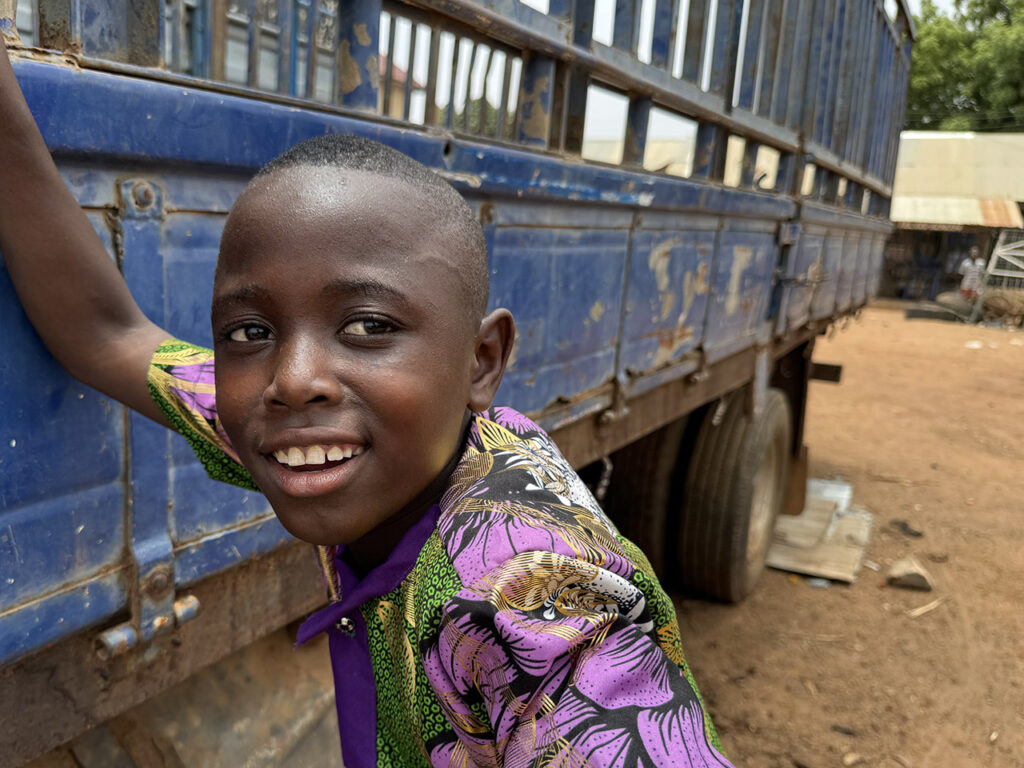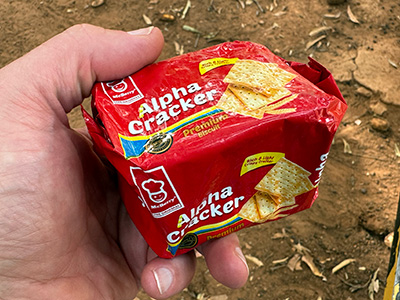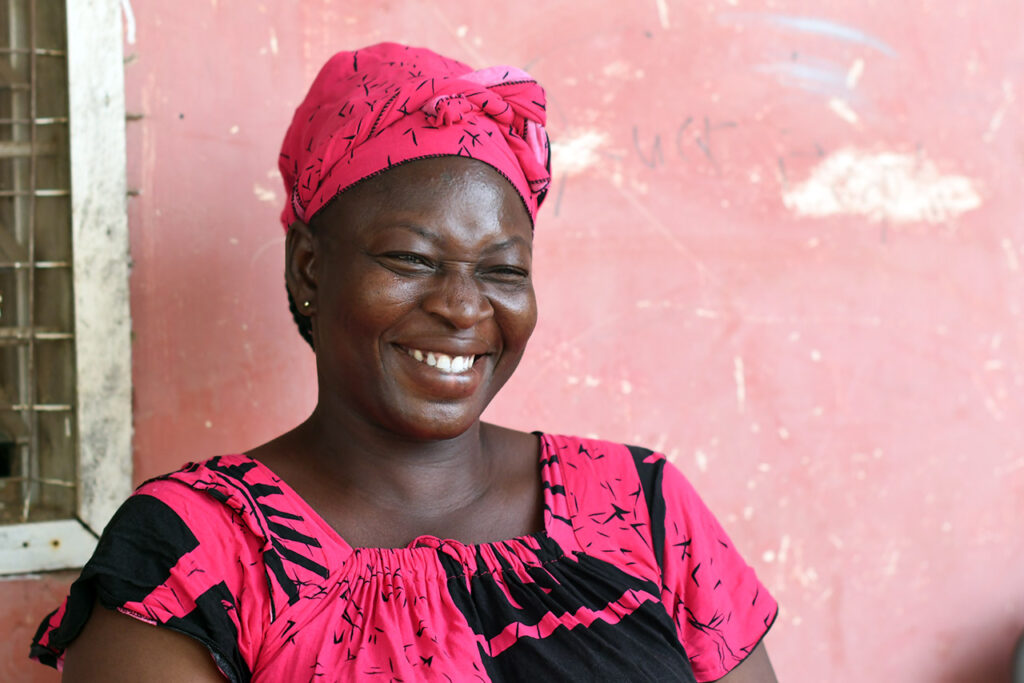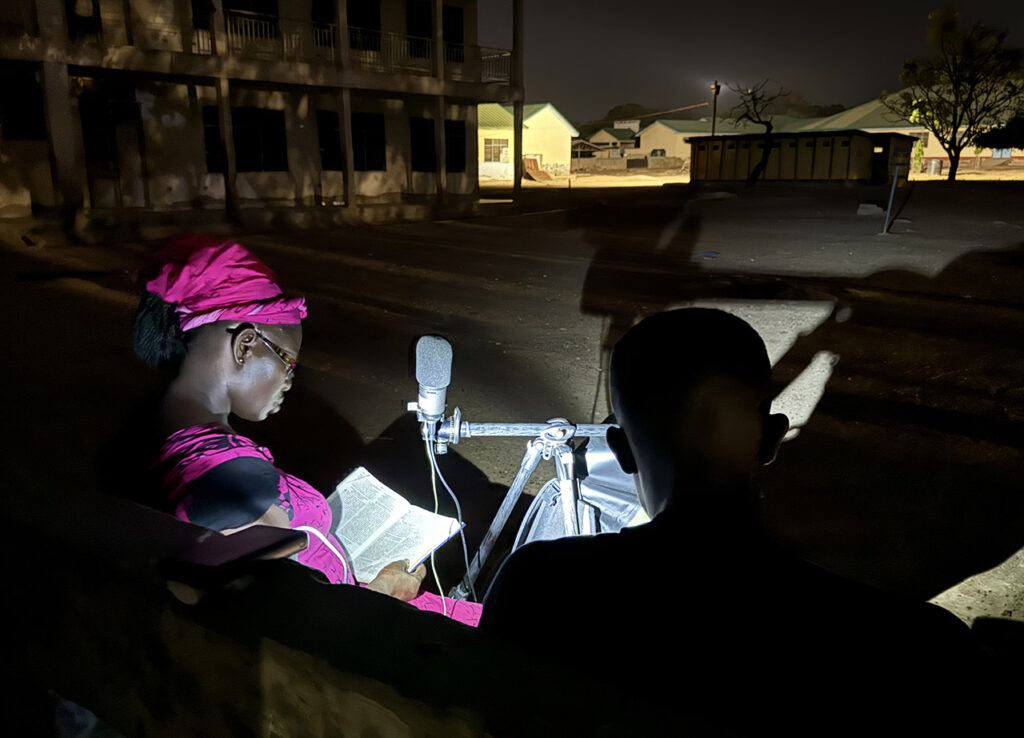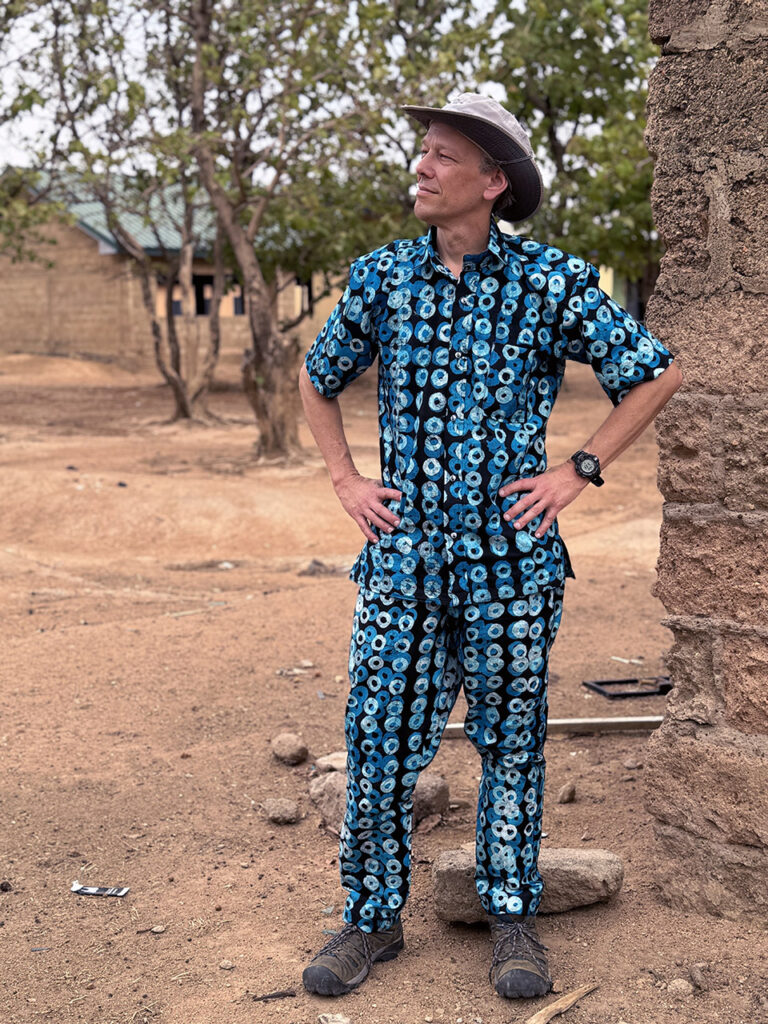Act 1
Africa is full of surprises. My colorful new shirt stuck to my damp chest as I breathed deeply, closed my eyes, and tried to settle back into Africa, to be African, to melt in the Africa that Beth and I have visited for 12 years. It was not working. The previous evening Ray told us he would come by the hotel at 9:00am – but quickly, before the words had trailed off, before they dissolved into the humid air, before the whine of the crickets sounded like a giggle, Ray looked back at Beth and I, smiled, and started over.
“Maybe 9:30… 10:00 at the latest”
Afrifa and Vida were to celebrate their church wedding at 11:00. The drive across the semi-ordered chaos of Accra traffic, from hotel to church, would take about an hour. Ray was to deliver the wedding message. Tight. Beth and I have tried to learn the rhythms – but we are life-long learners, or in our case, maybe life-long re-learners.
Our plastic chairs creaked as Beth and I shifted restlessly outside the hotel, waiting for the sound of Ray’s truck. It was 10:30. I glanced down at my watch again. I re-read the last WhatsApp message from Ray, sent at 10:02:
“We are on African time. We are now leaving the house. See you soon”.
As the truck pulled up Beth and I grabbed our wedding gift and scurried into the truck. Ray was in a handsome black pinstripe suit and Cynthia and Esi were smiling from the back seat as we buckled up and began bouncing down the road. I tried to resist, but could not. I shifted my wrist and looked down — 11:05.
As we drove, Ray and Cynthia explained the complex social rituals that are part of “the knocking” ceremony and the traditional marriage. At the knocking, the man’s family and the anxious young man go to the woman’s family to formally request marriage. The choregraphed exchanges are woven together with tradition, humor, and drama. The woman’s family asks why they have come, and eventually the woman is invited into the room and asked if she knows the young man standing before the family and wants to marry. Finally, the man is given “the list” – the required dowry of money and gifts he must bring to the traditional marriage ceremony. The list often includes 6 colorful fabrics – each six yards in length, possibly a sewing machine, money for the brothers of the bride, a suitcase, money, and fancy shoes for the woman’s mom, etc. If all goes well, the families agree, and the young couple are engaged.
The list is not intended to be easy. No quick trip to the market will do. The man must begin saving money and demonstrate he can provide for the future family. After months of work, when the man has gathered all the gifts, the couple schedules the traditional wedding. While the customs are changing a little, the traditional wedding is generally only for close family. A colorful procession of the gifts leads to some nervous drama as the family inspects and then may reject an item. The bride’s oldest brother might demand money for losing his sister. Ray explained that it is usually all accomplished in excellent Ghanaian humor, and the marriage is then blessed and complete. At that point, they are officially married. Often the “white” wedding at the church follows. For Afrifa and Vida, their traditional wedding was the day prior.
Ray’s phone rang out, breaking the laughter, questions, and discussion we were having about marriage.
Ray picked up the phone while driving. It was one of Afrifa’s friends calling from the church. Then we heard Ray:
“What? Are you serious? They started the wedding an hour ago? Oh, Oh, wow. They are on Methodist Time, not African Time”.
It was 12:05, and we didn’t have the precise directions to church. Ray handed me his phone so I could navigate. The GPS pin representing the location of the church was obviously incorrect – the building did not exist and we were on the wrong side of the neighborhood. Furiously typing, I sent WhatsApp messages to people Beth and I knew were already at the wedding,
“PLEASE, QUICK, SEND ME YOUR GPS, SEND ME A LINK”.
The phone rang again. The news from the church was grim. Ray suggested they could sing more songs. “We are close” he told them.
As I navigated the last 15 minutes of driving, Ray quietly sang praise songs. We arrived at the church. It was 12:20. Ray walked straight to the front and sat down. We filed into a pew near the front. We had not missed it! Beth and I enjoyed a wave of relief and some laughing while everyone else was singing. Our joy restored.
Act 2
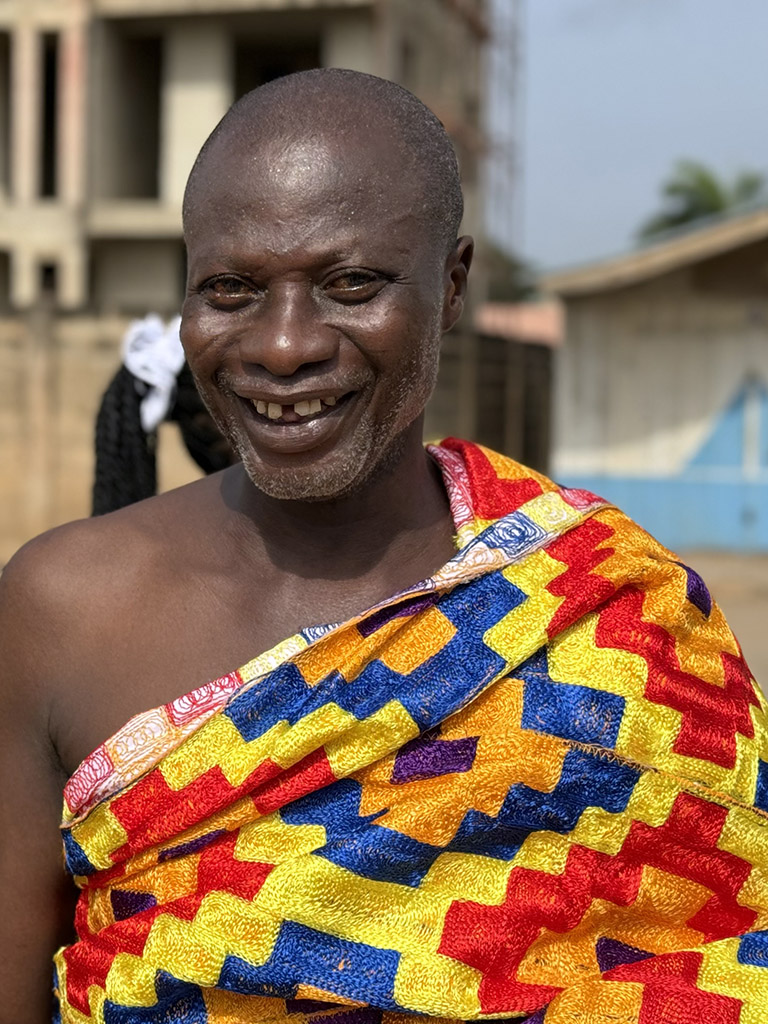
The organist swayed slowly as he led the Methodist choir sitting to the right. Black and white robes and mortar board graduation hats provided the formal choir a smart, dignified look. The hymns from the 1800s were beautiful, although not well known to me. Near the very front of the church, we spotted Vida and Afrifa sitting and taking it all in. Finally taking a moment to look around, we found smiling faces and colorful fabrics. We realized that we were the only Oburoni (white people) in the church, yet despite our tardiness, we felt welcomed. There was a calmness and peaceful celebratory spirit in the church.
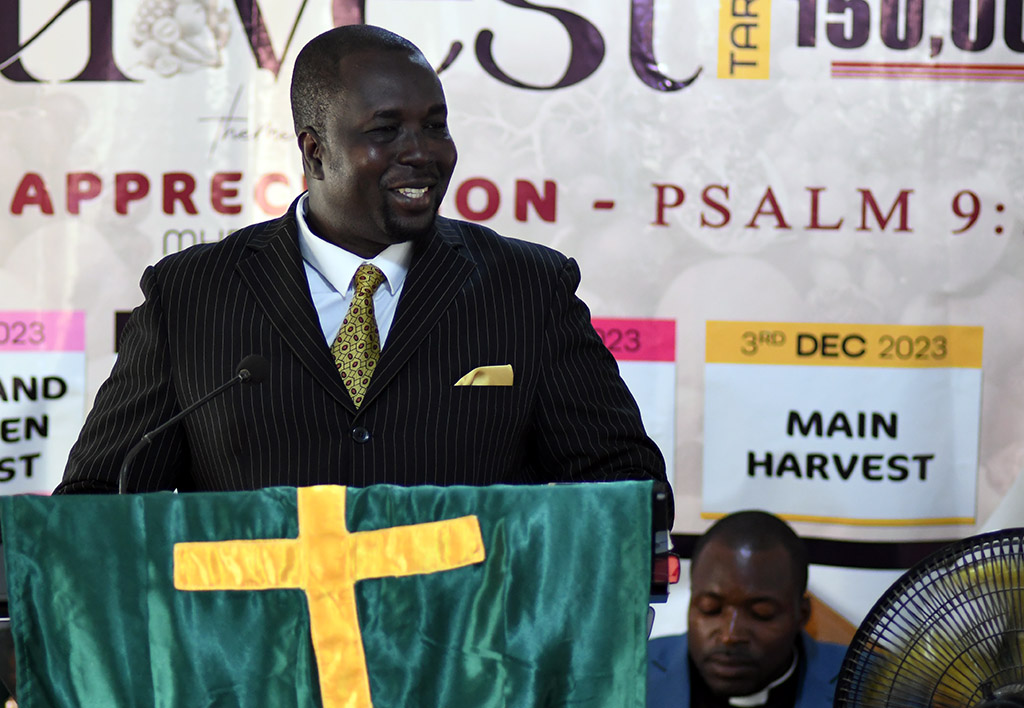
As the gathered sat back into the dark wooden pews, Ray stepped forward with an enormous smile and began his short sermon. He started by having everyone who was married stand. In waves, he called out years, and those married for fewer years were instructed to sit. 5, 10, 15, 20, 25, 30, 35, 36, 37, 38…. Beth and I were standing as well as an older woman in the back. Ray called out 39, and we grinned, looked around, and sat down. We have been married 38 years. Ray’s wife Cynthia then presented the woman a gift.
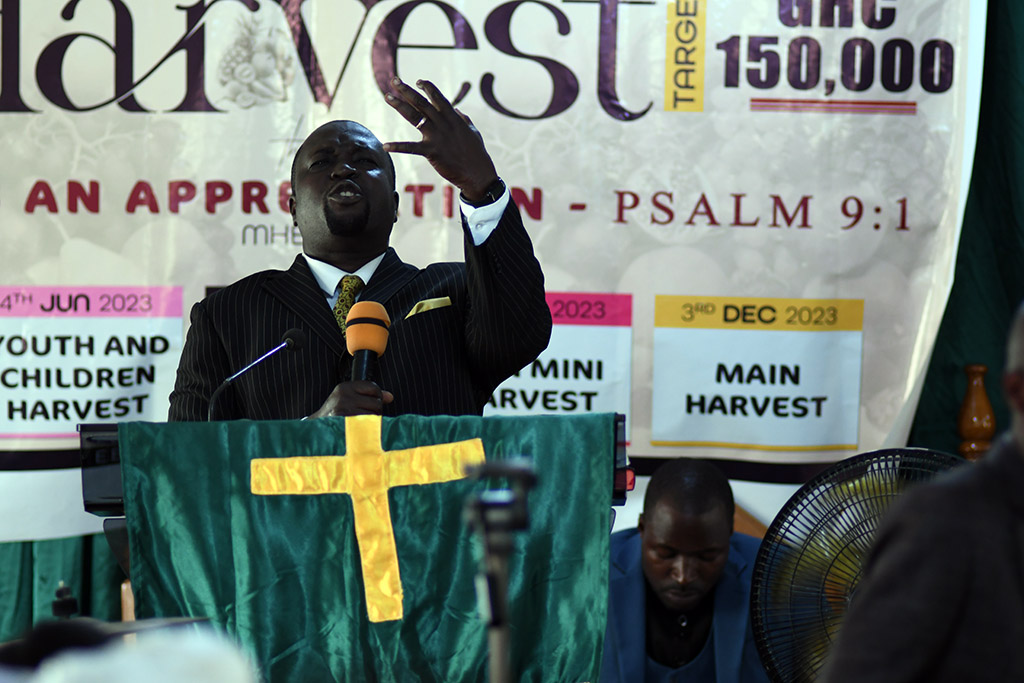
“What makes a marriage last?” Ray probed. Ray’s voice began to strengthen as he encouraged Vida and Afrifa to pursue a deep spiritual life together. Within a few minutes, Ray was preaching African style, and calling people to deeper, stronger faith. “To make a great marriage, you don’t need two great lovers, you need two great forgivers” he energetically exclaimed. He repeated it again, and then dove into the scriptures highlighting reconciliation, forgiveness, and patience – core beliefs for a faith marriage. I remembered my own impatience and harshness with Beth and my kids. Fortunately, they are great forgivers.
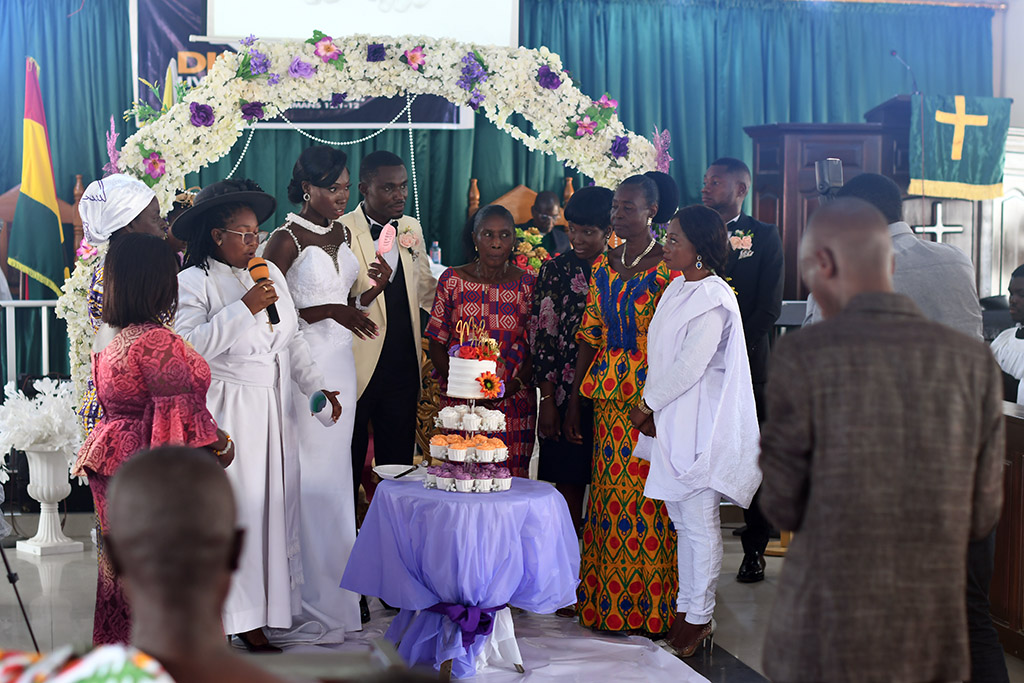
As the service wrapped up, the couple cut a cake and some distinguished ladies gathered around for prayer. The singing started again, but this time, the music, dancing, and celebration exploded into joyful dancing. Yes, there was dancing in the church. Imagine that!
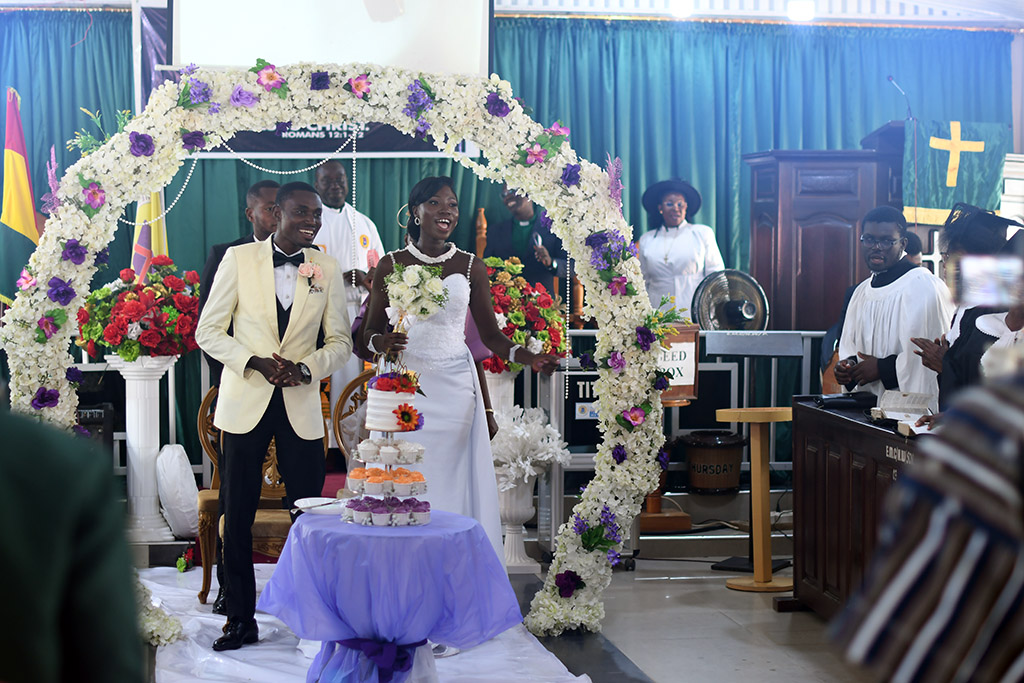
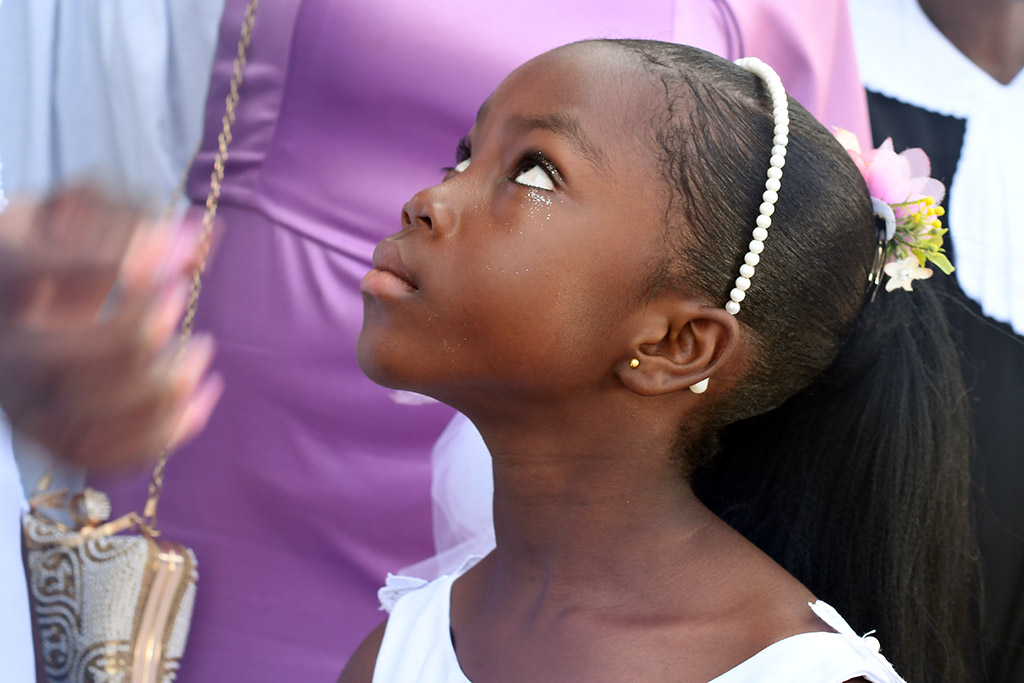
From 1800s hymns to energetic celebration. The formal choir was singing, but now the choir on the left side of the church, the “Praise Band”, with colorful dresses and tambourines took the lead. Everyone was on their feet. Men and women took turns going to the back of the church and dancing and singing their way to the front in celebration for the new couple.
But as I watched the celebration and sang the best I could to the Twi lyrics of the praise song, I suddenly noticed Vida and Afrifa were gone! The lovely couple had danced right out the side door. What? Ok, we know Methodists don’t Kiss, but everyone was dancing and the bride and groom were gone! Not fair! We first met Afrifa in 2017, and his gentle, kind, spirit was so beautiful. He asked us to pray for a wife. Now, six years later he is married, and we didn’t get a chance to meet Vida.
Act 3
As I looked around and wondered if it was just time for Beth and I to pack up our camera and wedding gift and walk outside, the music grew stronger. Heads, bodies, arms, everybody everywhere began to bounce and cheer. At the back of the church, having just crossed the threshold to the small building, Vida and Afrifa were dancing. Dancing in place for a few moments, grinning, letting friends take photos, they then inched forward and danced more. The grand procession brought everyone to their feet. Forget the worn presentation to a seated audience made by pastors wrapping up a wedding in the USA. No! Vida and Afrifa were presenting themselves, “dancing before the Lord” and the church, with their own moves, their own speed, their own plan.
In the heat, handkerchiefs not wiping dripping foreheads or drenched necks were twirled in celebration. I may have used my bandana to dry my eyes. Just maybe.
After the celebration, everyone went outside for pictures. Some fun ones below:
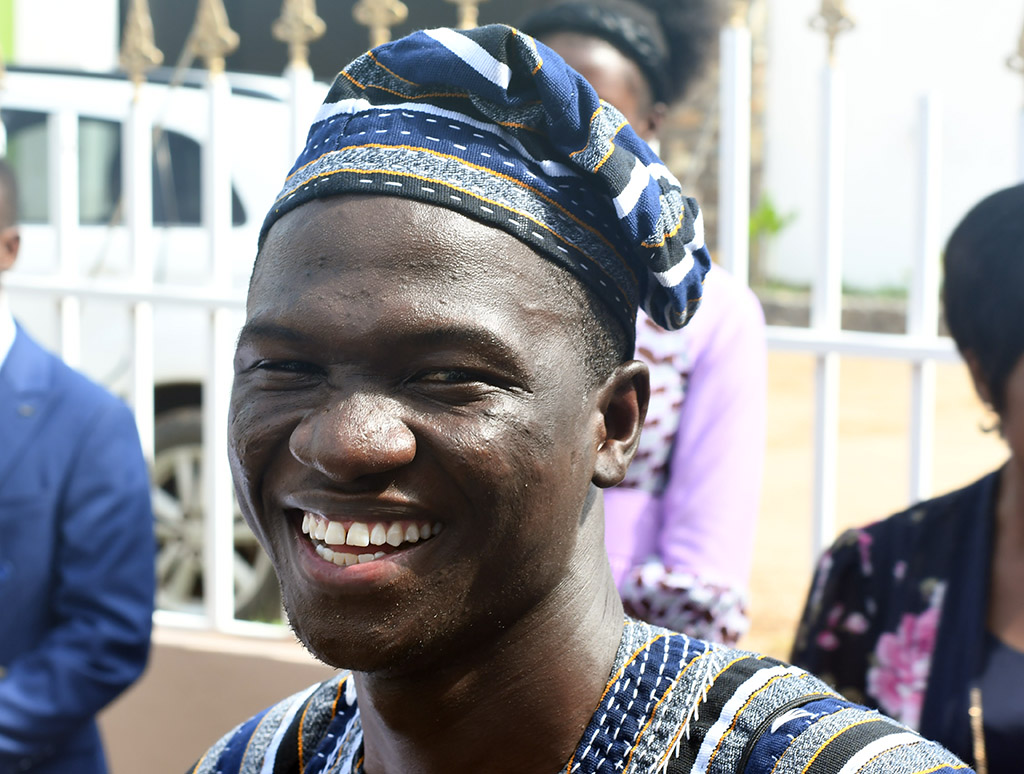
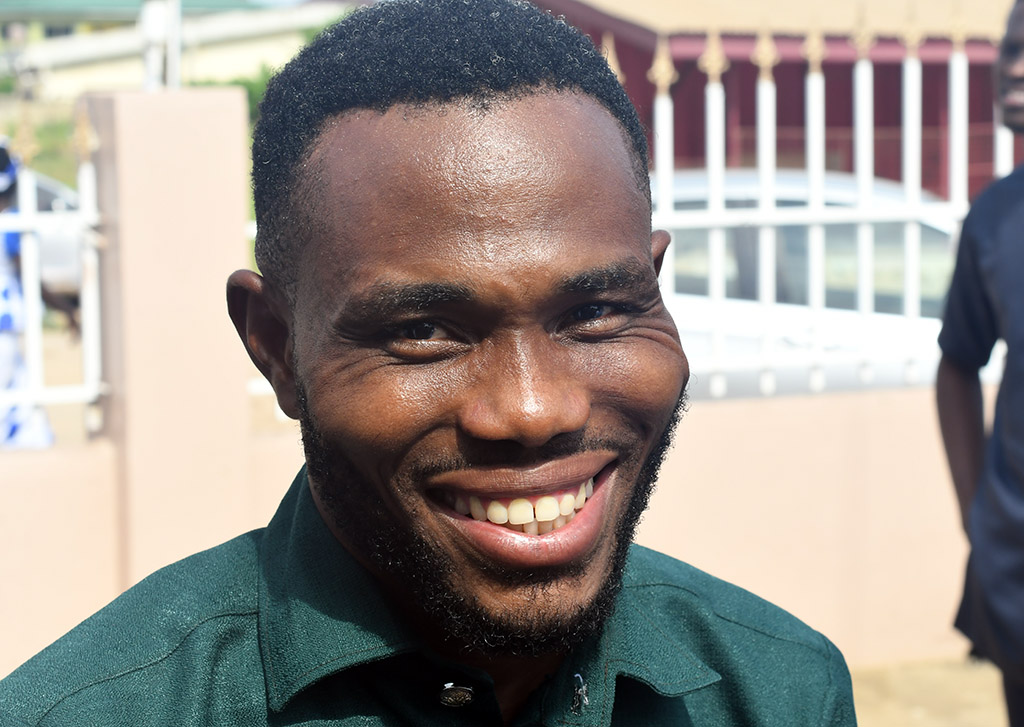
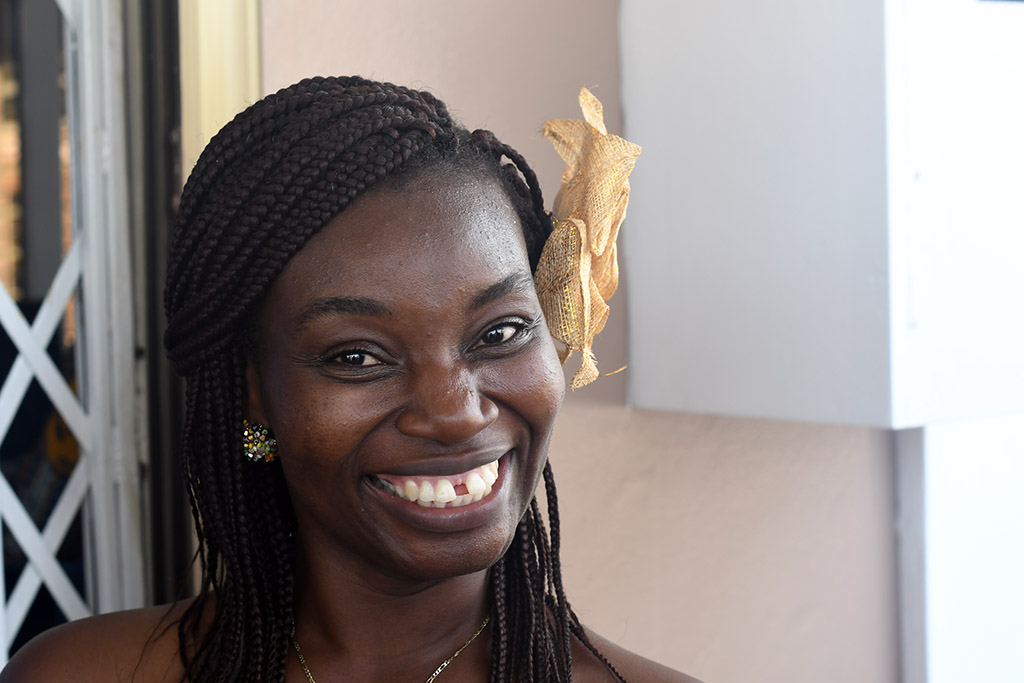
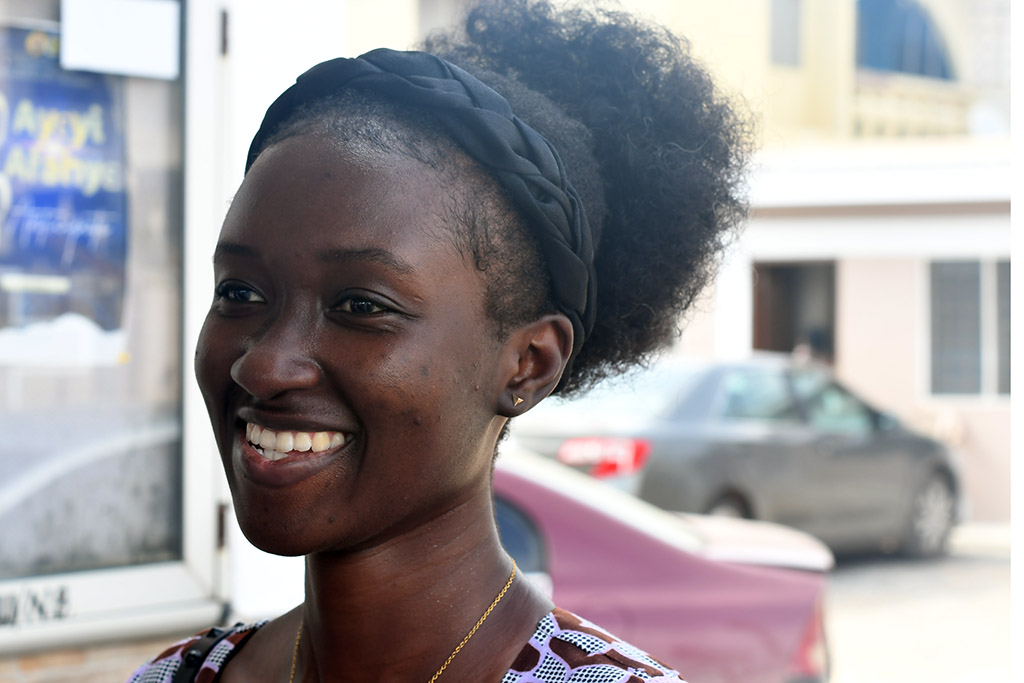

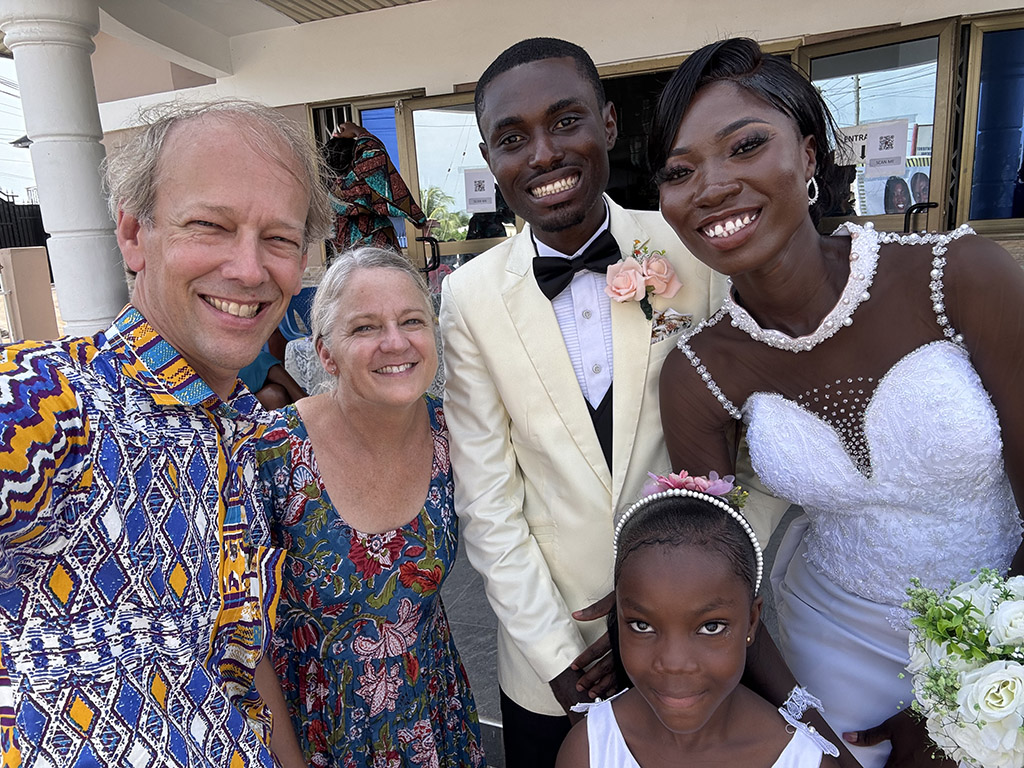
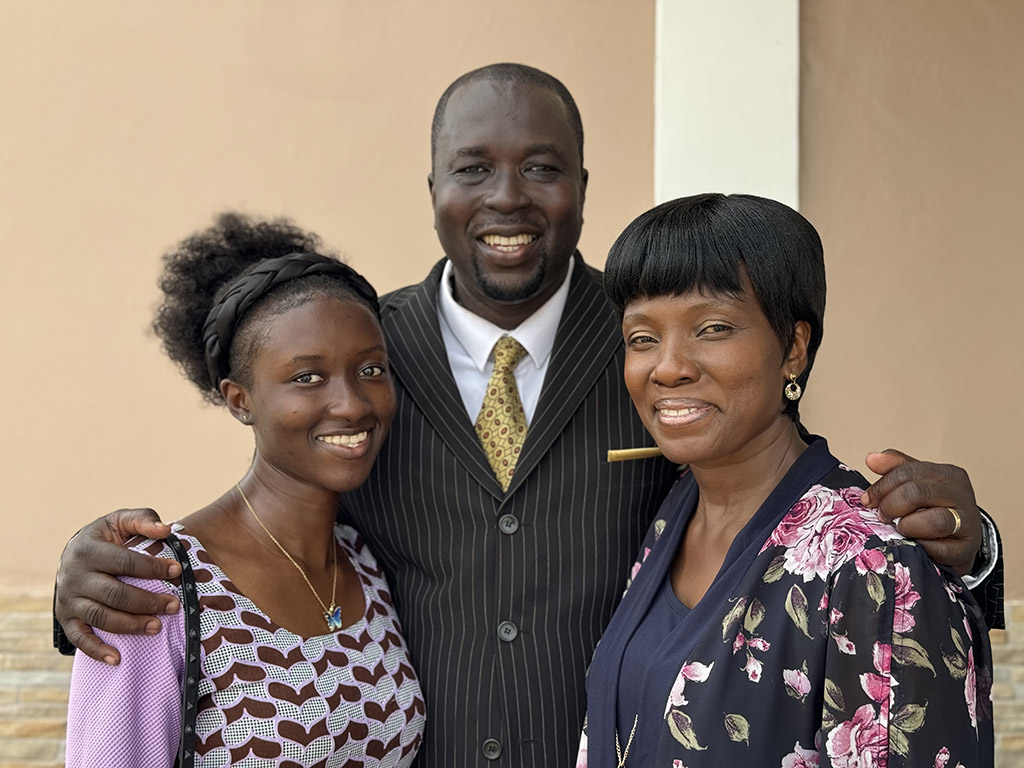
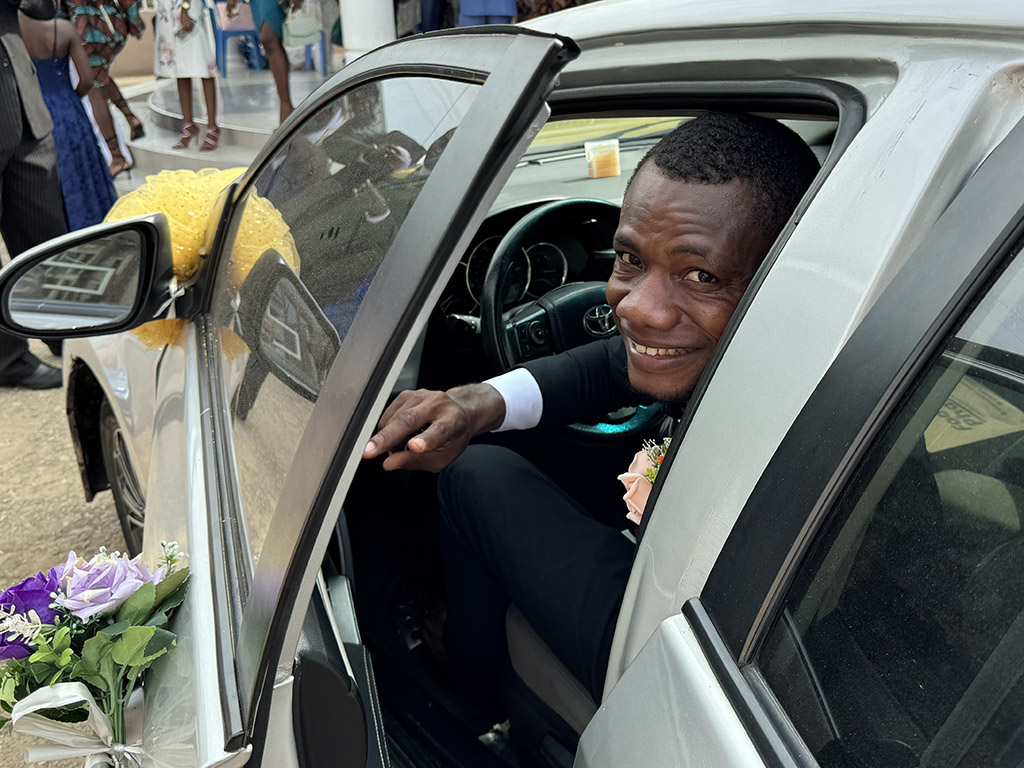
Epilogue
We have arrived in the USA. All but the unpacking is done. There is much work for later — assembling the audio, following up with Clement and Cyrus, planning for expanding the efforts to Benin, Togo, Senegal, and other countries in West Africa. A beautiful, hard, rewarding trip. We thank God for his care and all those of you supporting, praying, and participating. The wedding celebration and trip has me filling my journal with notes and thoughts. Patience, Forgiveness, Perseverance, Grace… the beautiful qualities we cannot achieve on our own through force of will and disciple. Every trip reminds me of where our strength comes from. Amen.

